As part of the Collaboration Mastery Program, startups can now access one-on-one expert support throughout their commercialization journey.
“During the past fall and winter, I spoke with over 100 startups that had engaged in matches through Ignite. A recurring insight from these conversations was a clear preference for tailored, hands-on support when working toward a commercial deal. Startups highlighted a need for guidance on specific challenges, such as pricing strategies and deal structuring, rather than one-size-fits-all content,” explains Yasmine Morrison, Startup Partner Manager at Ignite Sweden.
Based on these insights, Ignite is evolving its approach by introducing one-on-one coaching to provide more individualized support throughout the startup commercialization journey.
The coaching sessions aim to help startups address concrete challenges and opportunities as they prepare for, or follow up on, matchmaking meetings and collaborations with potential customers. This new format will complement the existing offer, which continues to include selected workshops designed to support startups participating in the matchmaking process.
To book a coaching session, please contact info@ignitesweden.org.
Meet the Coaches
These expert coaches bring extensive entrepreneurial and industry experience and will support startups with tailored guidance throughout their commercialization journey:
Carin Lagerstedt
Business Coach, Ignite Sweden
CMO, RemotiveLabs
Background
With extensive experience in branding and B2B marketing within technical and industrial sectors, Carin helps companies clarify messages and stand out in niche markets. Her background includes building strong thought leadership positioning and enhancing collaborations with customers and tech partners through storytelling.
Business Skills & Areas of Expertise
Turning complexity into clarity, pragmatic startup approach to marketing and communications, sales-enabling content – from first impression to follow-up.
What Startups Can Expect from the 1:1 Coaching Sessions
– As a current fractional CMO, I’m used to quickly assessing different contexts and identifying how marketing, communication, and branding can best support current business goals.
– Outside-in review of brand, content, and messaging
– Hands-on support in building trust with efficient content that supports the sales journey
– Advice on making your company relevant in the eyes of customers, media, and investors
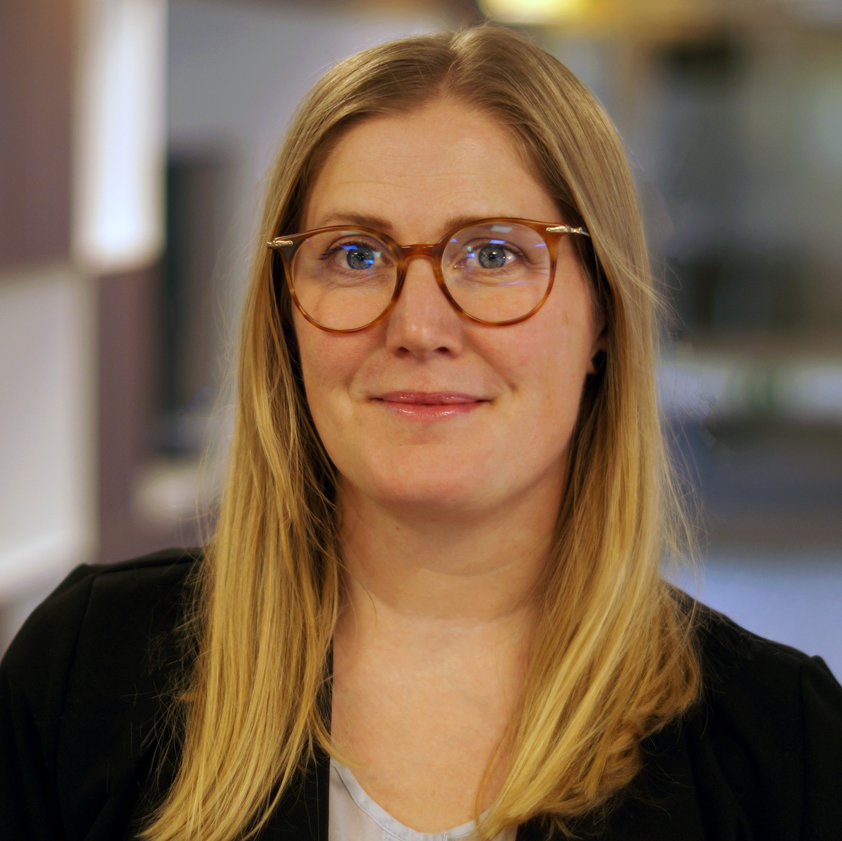
Christian Malmsten
Business Coach, Ignite Sweden
Background
30+ years of experience in complex B2B sales and over 20 years of coaching early-stage, university-linked startups to their first customers and partnerships.
Business Skills & Areas of Expertise
Complex B2B sales, commercial partnerships, deeptech and life science markets, medtech and design-driven ventures.
What Startups Can Expect from the 1:1 Coaching Session
– Tools that increase your chances of securing commercial partnerships
– Concrete feedback to improve your sales process
– Clear and honest input
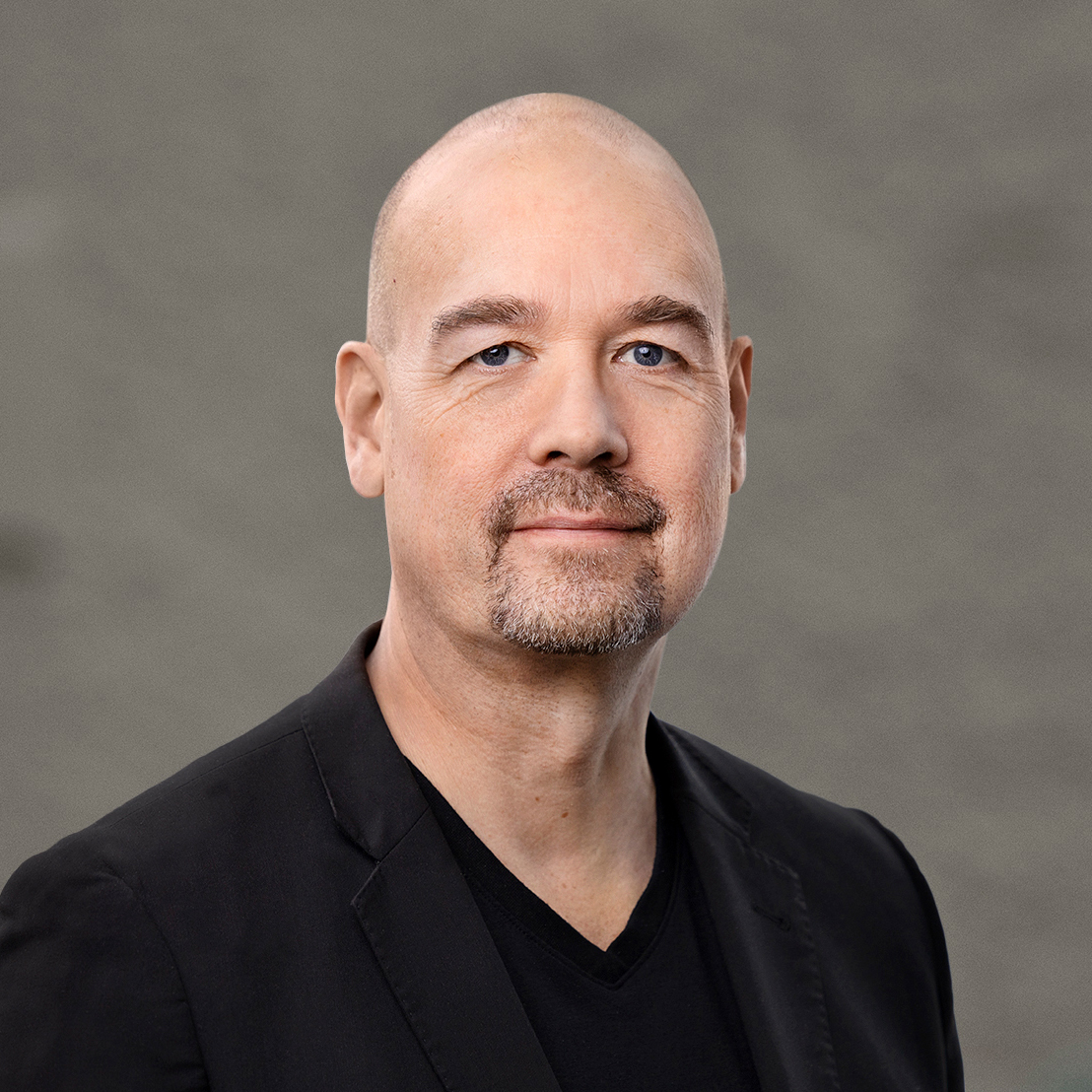
Håkan Axelsson
Key Partner Manager, Ignite Sweden
Background
5 years’ experience as a researcher in environmental science. 15’ years experience as a business executive and business developer in the energy sector. 25 years’ experience in the startup ecosystem as a founder, business coach, VC investor and business angel with focus on sustaintech, deeptech and femtech.
Business Skills & Areas of Expertise
Customer validation, product–market fit, go-to-market strategy, sales, communication, soft & VC funding, IP strategy, stakeholder and board management.
What Startups Can Expect from the 1:1 Coaching Session
Honest feedback, an outside perspective, experience-based benchmarks, and encouragement.
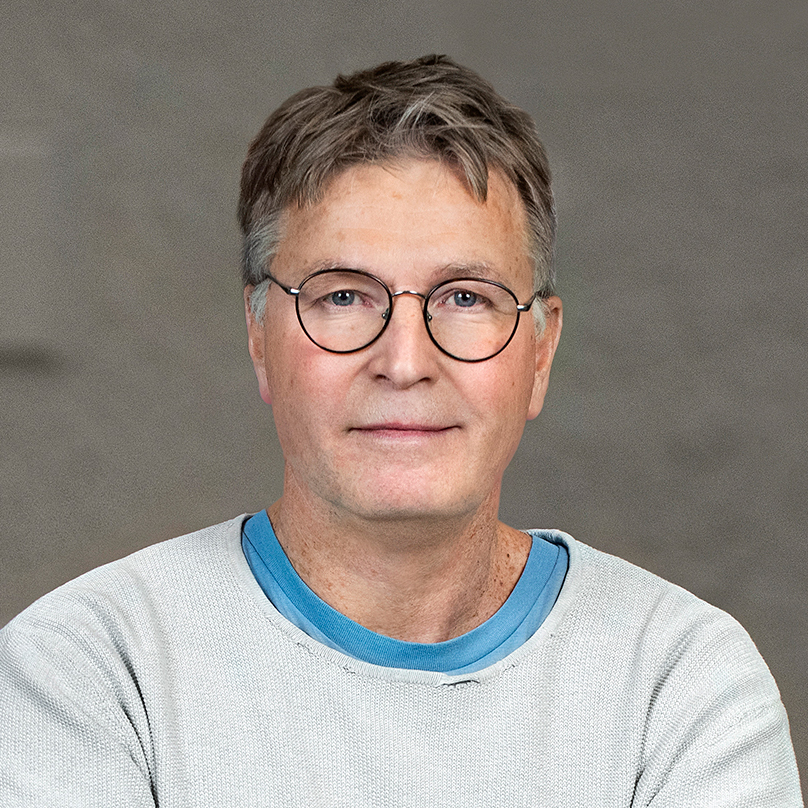
Lotte Kylberg
Strategic Pricing Expert, Aprice
Background
With 25+ years of experience in strategy and pricing, Lotte has worked as a management consultant, co-founded and led a retail company, and held senior roles in commercial development. She brings deep expertise in pricing and packaging, supporting startups and scaleups across industries.
Business Skills & Areas of Expertise
Business strategy, pricing strategy & packaging; sales and marketing strategy; analysis, modeling, and commercial development.
What Startups Can Expect from the 1:1 Coaching Session
– New perspectives on pricing and its role in business success
– Practical advice tailored to your offering and stage
– Clear pricing model and packaging structure
– Strategic alignment of pricing with market position and goals
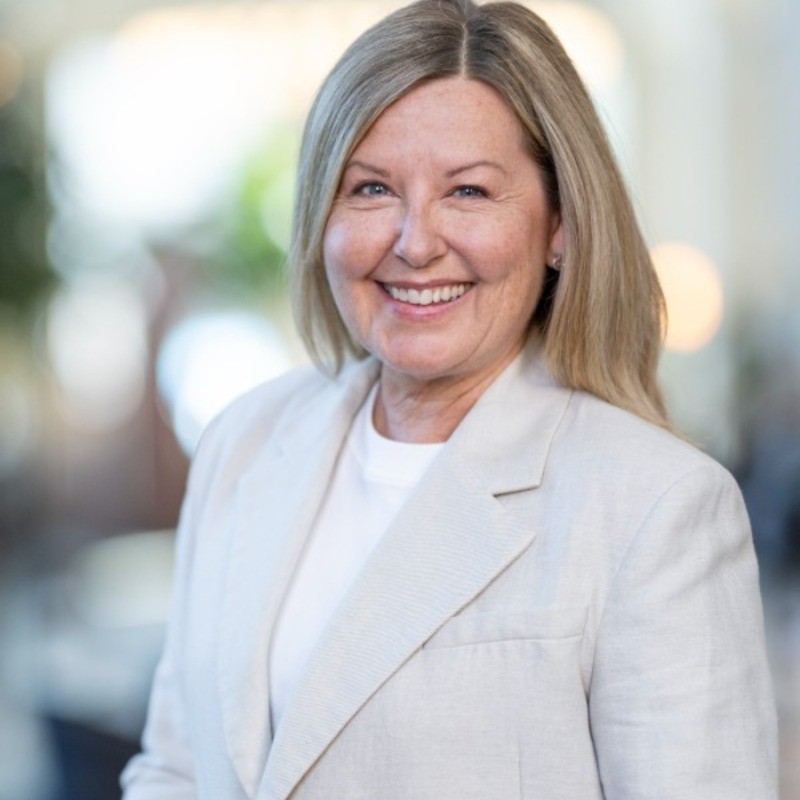
Marit Finch-Westin
Head of Public Sector Partnerships, Ignite Sweden
Background
Senior consultant with broad experience across public and private sectors. Former Director of Economic Development in a major Swedish municipality. Held leadership roles in international companies across Europe. Focused on innovation and public-private collaboration since 2011.
Business Skills & Areas of Expertise
Strategic development, scaling and growth strategies, public–private collaboration, innovation and sustainability in the public sector.
What Startups Can Expect from the 1:1 Coaching Session
Honest feedback, an outside perspective, experience-based benchmarks, and encouragement.
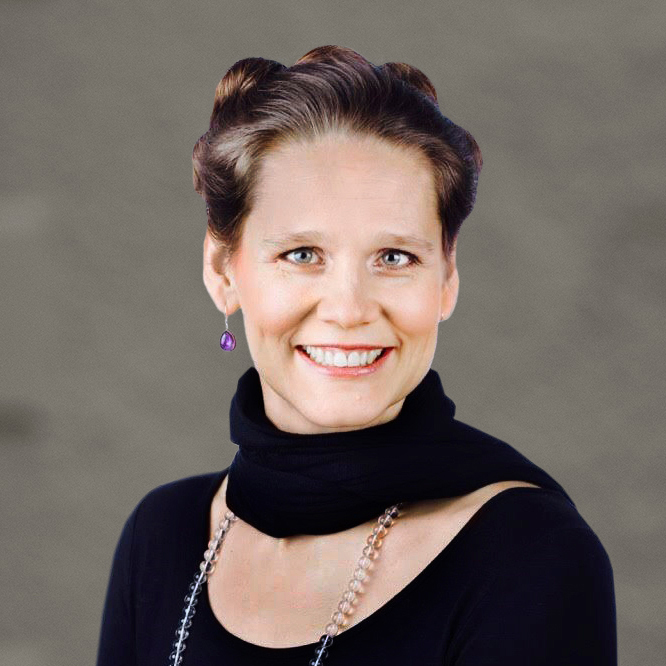
Mattias Ripoll
Key Partner Manager, Ignite Sweden
CEO, Syndata
Background
With 20+ years in sales, product, and leadership, he has co-founded three companies -including one exit- and driven innovation at both Ignite and AI Sweden. He combines deep expertise in privacy tech and GDPR with hands-on experience in B2B sales and compliance-focused growth.
Business Skills & Areas of Expertise
Product–market fit, startup operations, go-to-market and B2B sales, AI and compliance, strategic partnerships, fundraising and investor dialogue, regulatory innovation, cross-sector collaborations, and public funding (Vinnova, EU, IMY).
What Startups Can Expect from the 1:1 Coaching Session
– Fast pattern recognition and pragmatic advice
– Strategic positioning in regulated markets
– Honest but constructive feedback
– Understanding of funding and investor logic
– As a current startup CEO, I understand the pressure, pace, and ambiguity first-hand and probably made all the mistakes.
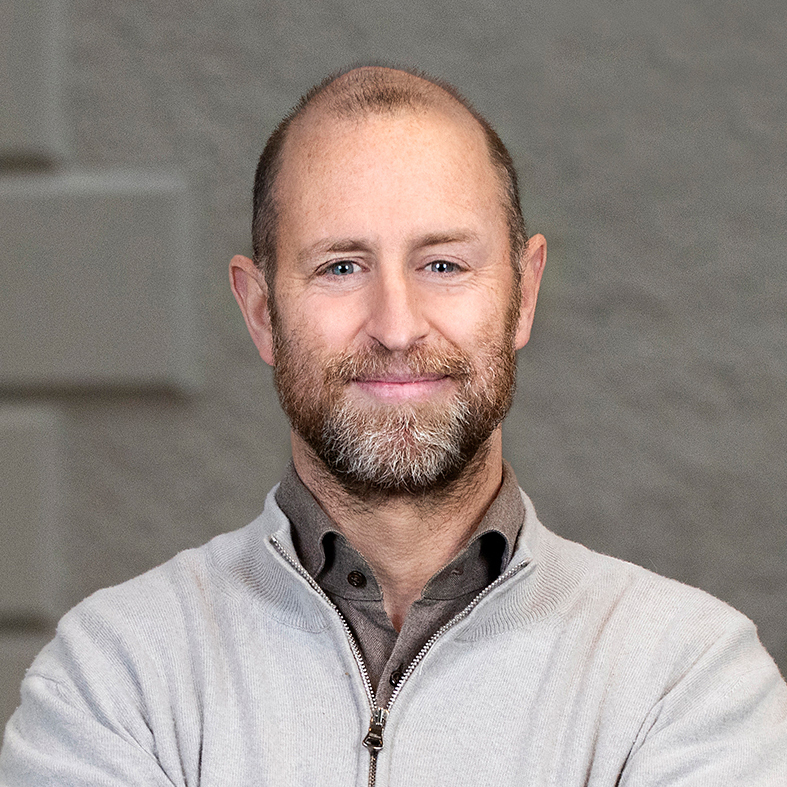
Sandor Albrecht
Business Coach
Background
He worked for 25+ years in several leadership positions in innovation, research and product development in the ICT industry, and was a strategic advisor and coach at Ignite and AI Sweden. He combines deep expertise in technology strategy and product portfolio management with operational experience in science-based innovation transfer and B2B ecosystem management.
Business Skills & Areas of Expertise
Deeptech technology transfer; product and system architecture design; AI, ICT, life and materials science; B2B sales and strategic partnership; fundraising and investor dialogue; ecosystem play; technology and business strategy, mindset and culture.
What Startups Can Expect from the 1:1 Coaching Session
– Kind and honest dialogue
– Focus on the core of the innovation and the value creation
– Pragmatic and actionable advice
– Shaping the narrative to be more successful with investors and customers
– Help to build culture and mindset

The ScaleAble project wrapped up its final matchmaking event in Tallinn, where 13 corporates and 45 scaling companies from Estonia, Finland and Sweden explored dual-use and securetech innovation.
Led by Ignite Sweden, Norrköping Science Park, and Tehnopol, the Central Baltic Interreg Programme project ScaleAble supports scaling companies and corporates in forging valuable cross-border collaborations.
The goal of the final event was to explore partnerships in dual-use and securetech, two rapidly growing sectors that are crucial for the region’s future security and resilience.
“What makes this specific event outstanding is the theme of the event, which is built around dual-use and security technology,” says Martin Goroško, Business Service Manager at Tehnopol. “This theme is a trending topic in this region right now. We see a lot of investments made in these areas. There are many up-and-coming companies, and corporations are also seeking solutions in these areas because they want to enhance their resilience.”
Insightful Presentations and Keynote Speeches
The first day of the event set the stage for meaningful discussions on dual-use and securetech.
The event opened with a series of insightful keynotes from experts in the field of dual-use technology and security, such as Dr. Mart Noorma from NATO CCDCOE and Marleen Rootamm, who gave an overview of NATO’s DIANA initiative.
Laura Toodu from DefSecIntel Solutions and Tauri Tuubel of Defendec shared their success stories on defence innovation and startup–state collaboration. Finally, some of the participating corporates had the chance to pitch on stage to the startups on-site.
Real Business Opportunities Through Matchmaking
The second day was dedicated to 75 curated one-on-one meetings between the scaling companies and the corporates, where real opportunities for collaboration were explored.
“The matchmaking process is quite extensive. We begin by activating the right partner and person within the corporation. From there, we gather their innovation needs through our assessment process and dive deeper into what they’re seeking in a startup. Next, we scout startups with the right technology and match them with the corporations,” explains Arwin Zendehrokh, Project Manager at Ignite Sweden. “It’s a qualitative process designed to ensure that the match has real business potential.“
“This is a unique opportunity to meet these corporations and the right people at the right place,” says Elin Sandahl, co-founder and Business Developer at the Swedish startup Norgald, which develops a platform, Elvira, that secures cyber-physical systems.
“In-person meetings are especially helpful because you discover collaboration opportunities you might not have known about otherwise and gain a better understanding of the actual challenges and needs of the corporations,” she adds.
“The matchmaking meetings went quite well. We have already agreed on follow-ups, which means they’ve been quite successful,” says Andy Viikmaa, CEO of Trackdeep, an Estonian scaling company focused on drone detection systems.
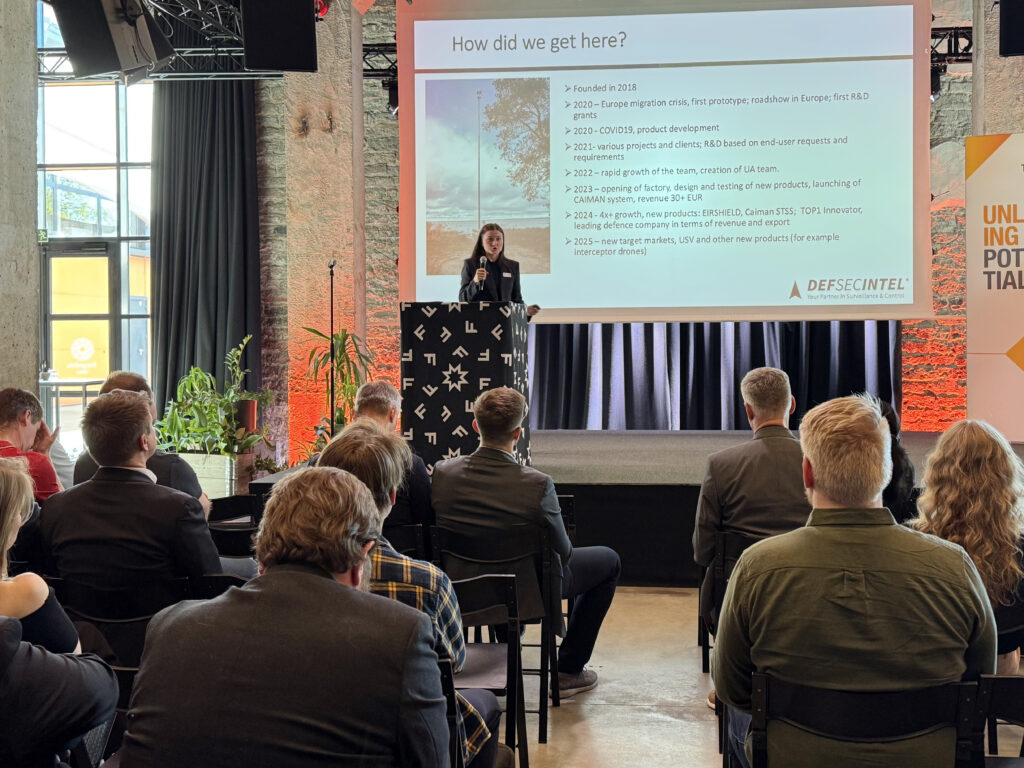
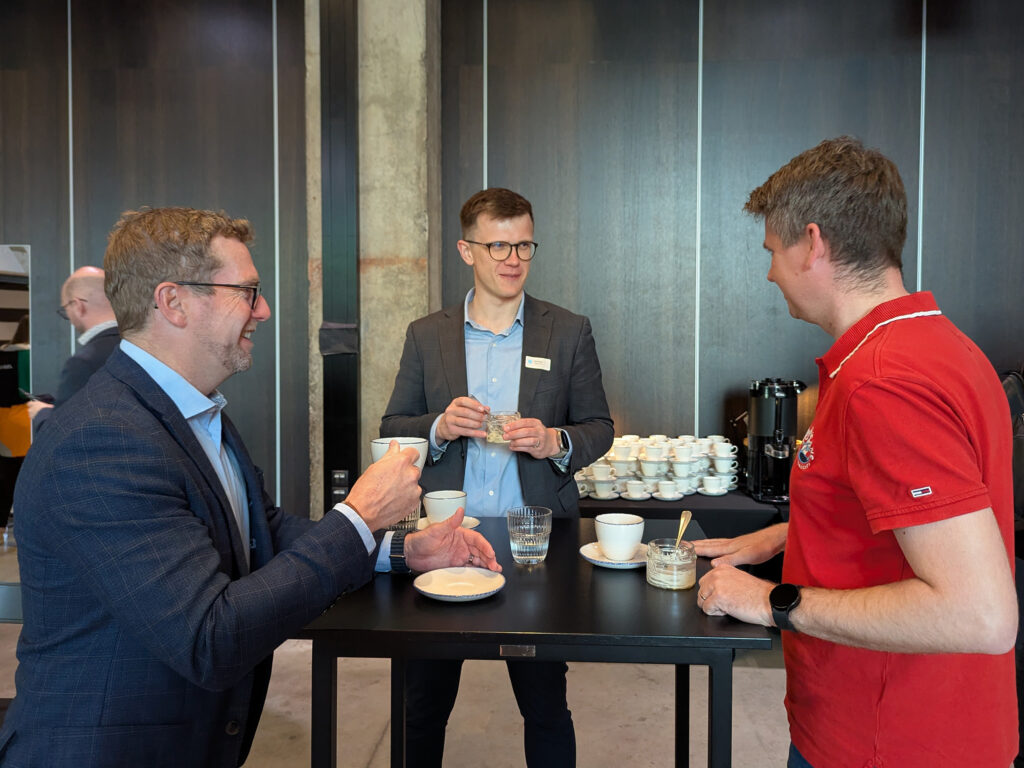
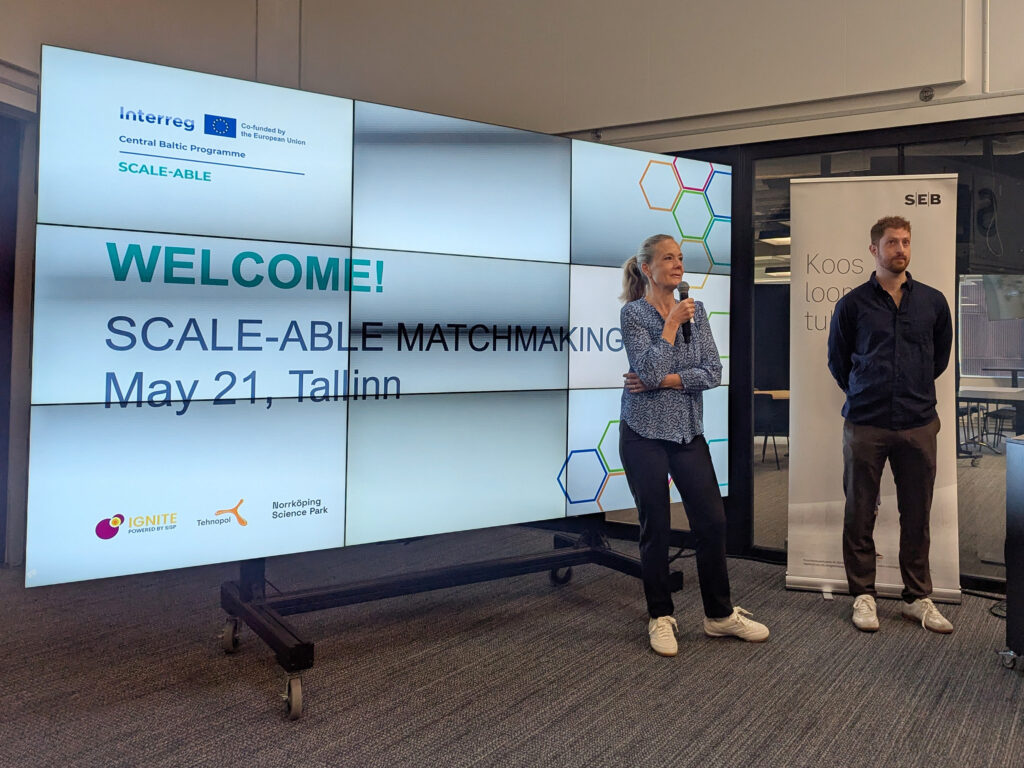
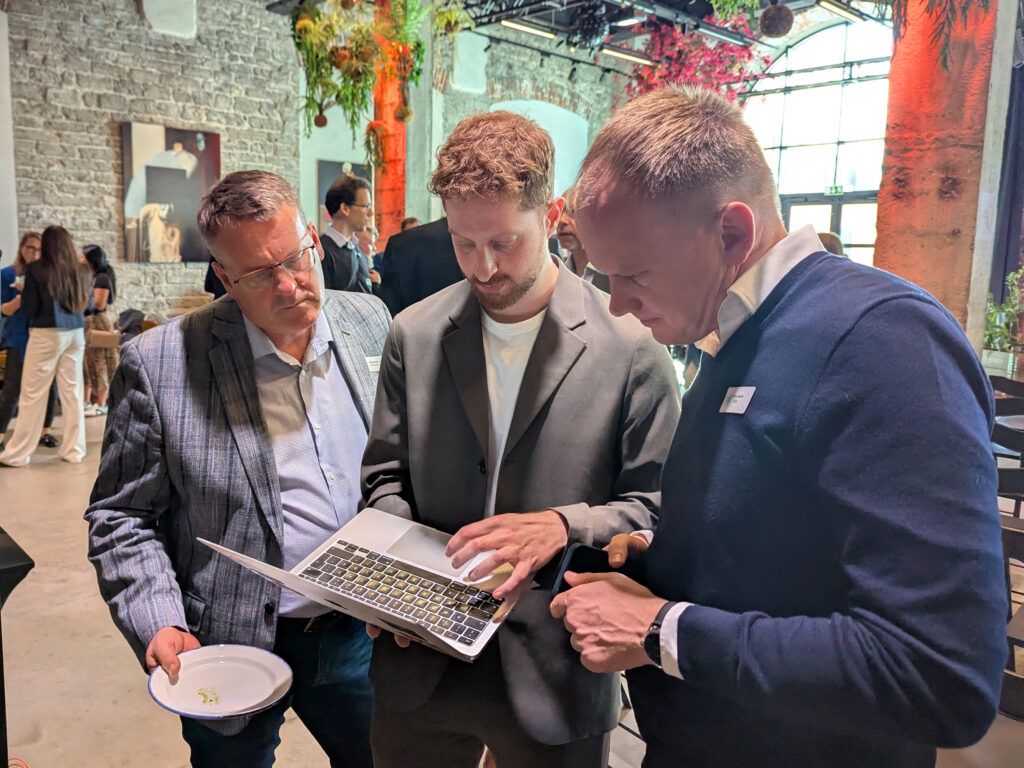
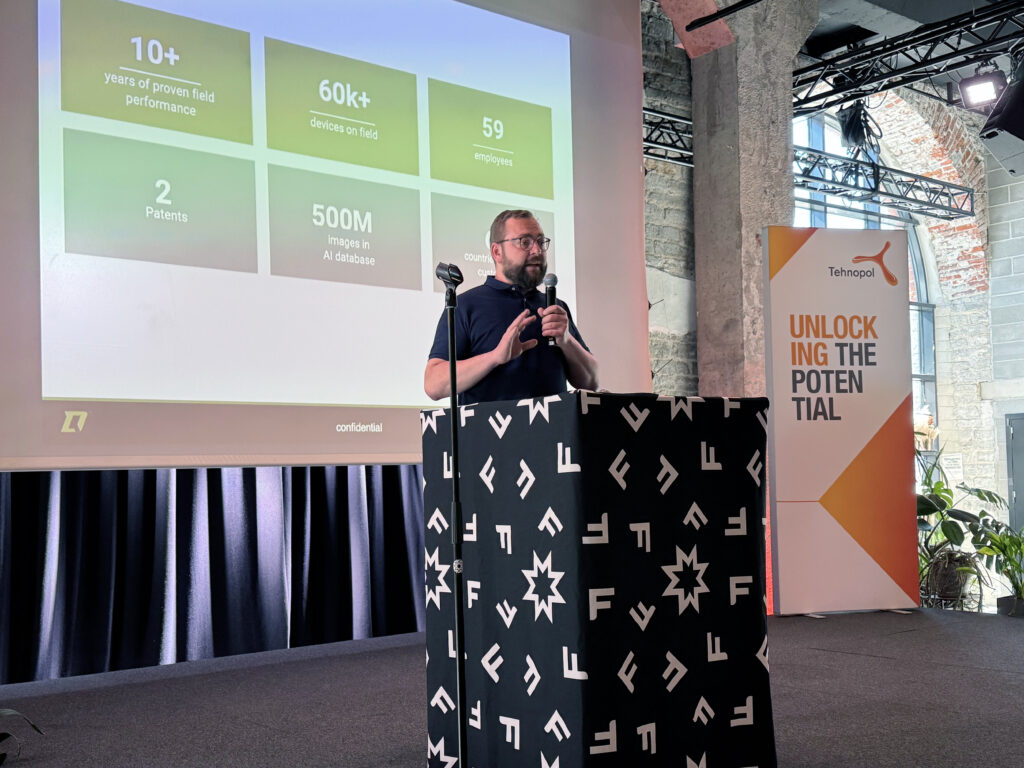
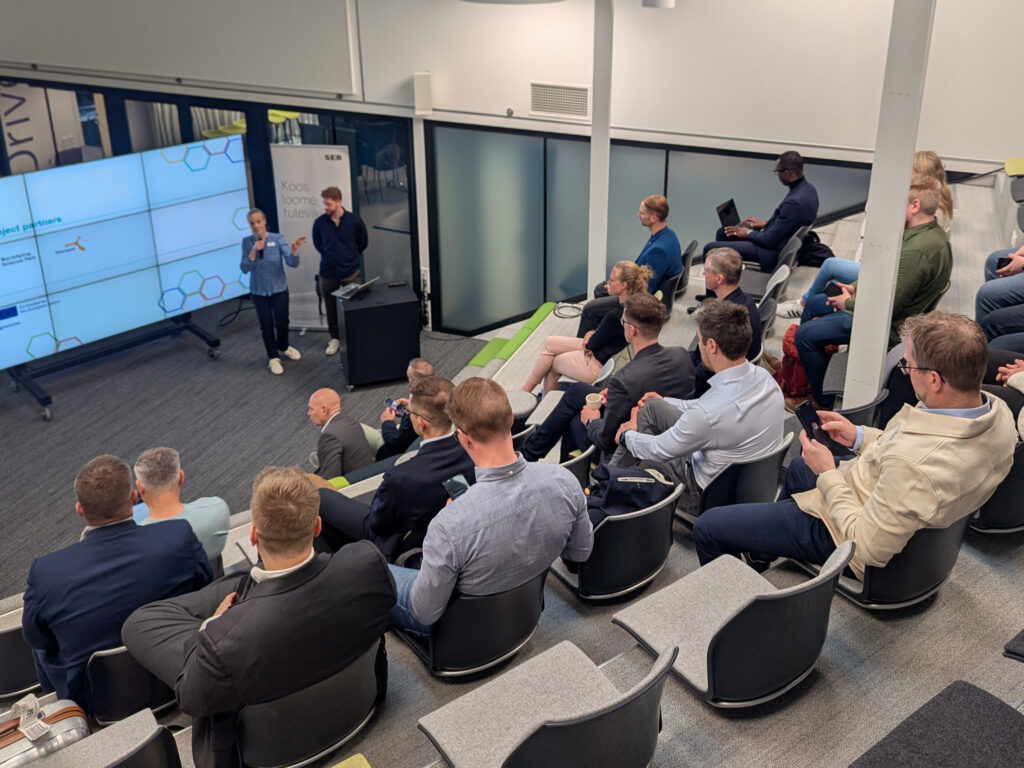
Among participating corporates were Enefit and Elomatic, and they were impressed by the quality of the startups involved.
“I personally like face-to-face meetings with new people, especially with startups in their early beginning, as they have so many great ideas to catch up with,” says Jukka Turunen, from the Finnish company Elomatic.
Kaisa Einsok, Discovery Manager at the Estonian energy company Enefit, thinks that startups are very good at shaking up the corporate world and understanding customer needs.
“They give us a new understanding of what is important currently because the startup community reflects very well the kinds of problems to solve. For example, during the energy crisis, we saw a lot of energy startups rising and making money. Now we see it in the defense industry.”
Looking Toward Future Cross-Border Partnerships
As the final ScaleAble matchmaking event concludes, the impact of the cross-border partnerships forged during this time will continue to unfold.
“Finland is such a small country and there aren’t many big companies in our area. This Cross Baltic opportunity enables us to communicate with other big companies in the nearby countries as well. So that’s very good,” says Eetu Silvennoinen from the Finnish startup Oinride, which manufactures engineered robots for the mining industry.
“The collaboration between Estonia, Finland, and Sweden should be recognized more,” says Klara Ewald, Project Manager at Norrköping Science Park. “It has great value for all these countries in the long run, both for us as partners and organizations and for the ecosystem. It provides a great way to work cross-border because we’re very close to each other.”
“The ScaleAble project doesn’t end here because we definitely want to push these collaborations forward to achieve successful outcomes,” concludes Martin Goroško, Business Service Manager at Tehnopol. “The matchmaking events are primarily about generating initial contact and starting negotiations between corporates and startups. In the next phase of the project, we will focus on supporting these startup collaborations to ensure successful outcomes.”
Watch this video to get a glimpse of the third ScaleAble Matchday’s highlights
Ignite Sweden’s CEO has been named among 150 technology leaders in the annual list compiled by Impact Loop in collaboration with Teknikföretagen.
Sara is honored among the “Leaders and Transformers” category for her outstanding work in leading Ignite Sweden’s mission to foster innovation by building bridges between startups and established organizations, facilitating knowledge exchange, and accelerating startups’ time to market.
“Being recognized among the technology leaders driving impact is truly an honor — but it’s also a reminder that collaboration is the real catalyst for sustainable innovation,” says Sara Hamlin.
Ignite Sweden Board Member Isabelle Palmgren, CEO and founder of sustainability-focused startup Mimbly, was also featured on the list. Her inclusion highlights the important role of impact-driven entrepreneurs in shaping a sustainable future through innovation and technology.
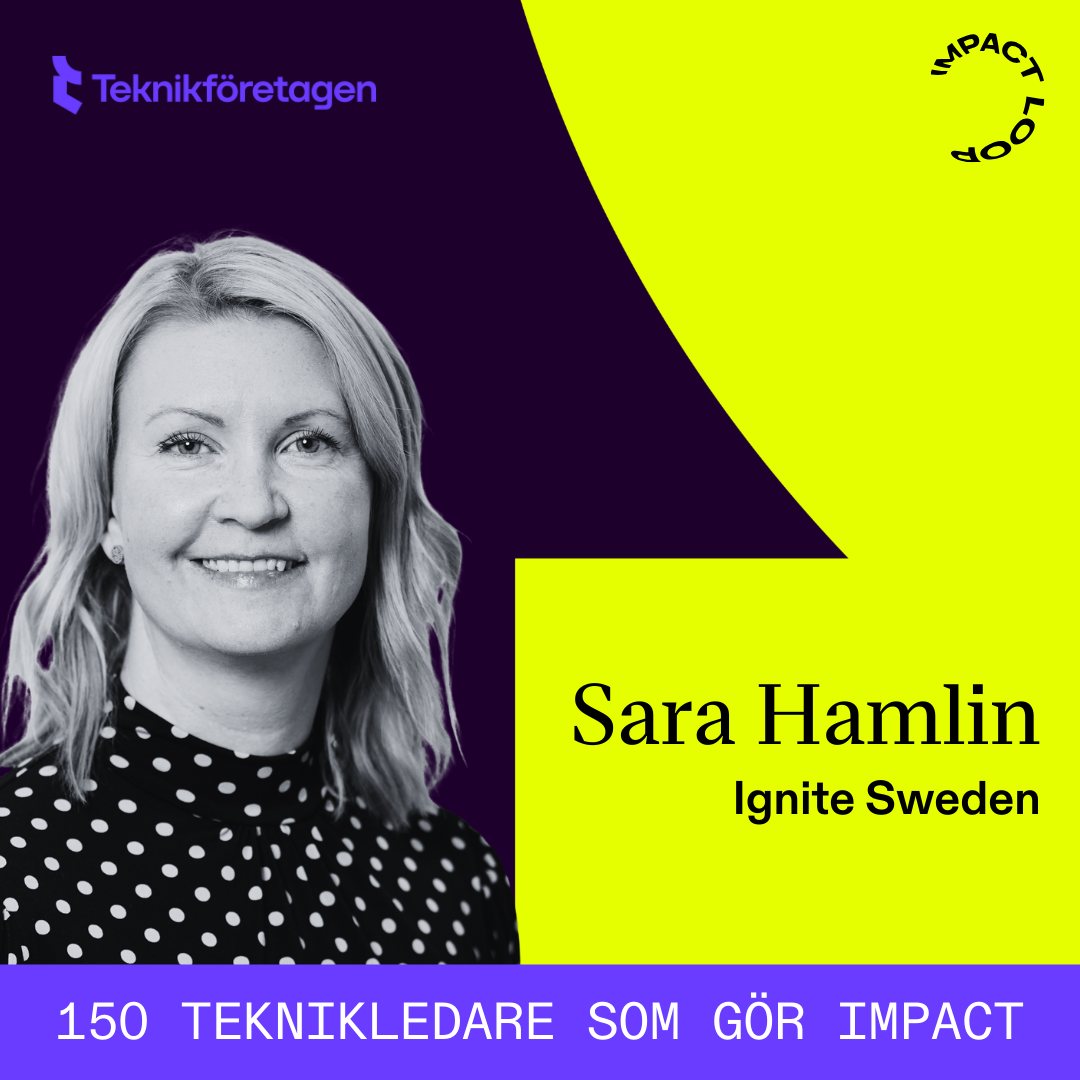
About the 150 Technology Leaders Driving Impact 2025
Each year, Impact Loop — together with their partner Teknikföretagen — reviews their network of over 1,200 impact companies, consulting industry experts and stakeholders to identify key players who are driving significant change. The list aims to spotlight the technology leaders inspiring others to push for positive transformation across Sweden and beyond.
The 150 individuals selected for the list are entrepreneurs, leaders, investors, and changemakers who are using technology as a tool to lead companies, industries, and society toward a more sustainable future. The selection highlights individuals working across sectors — from batteries and green energy to AI, drones, and advanced materials — who are accelerating the transition toward a more sustainable world.
Click here to explore the full list of technology leaders.
Ignite Sweden has appointed a new board to take the next step in scaling collaborations between startups and established organizations.
With members representing the entire innovation ecosystem – from startups and large industry to the public sector and regional innovation environments – the board brings strategic leadership that reflects Ignite’s unique role as a national bridge-builder.
“It’s in the interplay between different actors that future solutions are born. With this new board, we gain both strategic vision and close operational insight into the companies we are here to support,” says Sara Hamlin, CEO of Ignite Sweden.
Since autumn 2024, Ignite Sweden has operated as a standalone company within SISP – Swedish Incubators & Science Parks. The formation of an independent board marks an important milestone in the organization’s continued development.
The new board members are:
- Anders Cronholm, CEO, Blekinge Business Incubator (Chair)
- Isabella Palmgren, CEO & Co-founder, Mimbly
- Liam Hardey, CEO, Cellfion
- Johan Almesjö, CEO, HBV
- Magnus Ahlström, VP Global Innovation, SAAB
- Martina Hegestig, Business Operations Manager, LEAD
Ignite Sweden is a national non-profit initiative that has connected more than 1,800 Swedish startups with corporates and public organizations since its launch in 2017. By focusing on concrete needs, perfect timing, and strategic matchmaking, Ignite has enabled more than 700 collaborations – from pilots and customer relationships to long-term partnerships and international expansion.
“Ignite has been absolutely crucial to our startup growth. They helped us find the right collaboration partner at exactly the right stage – without them, we probably wouldn’t be where we are today,” says Isabella Palmgren, co-founder of cleantech company Mimbly and newly appointed board member.
Ignite’s new structure as an independent entity opens up new opportunities to further focus on supporting startups throughout their journey – from their first customer to global growth. With its new board, Ignite is well positioned to meet future challenges and enable even more transformative collaborations.
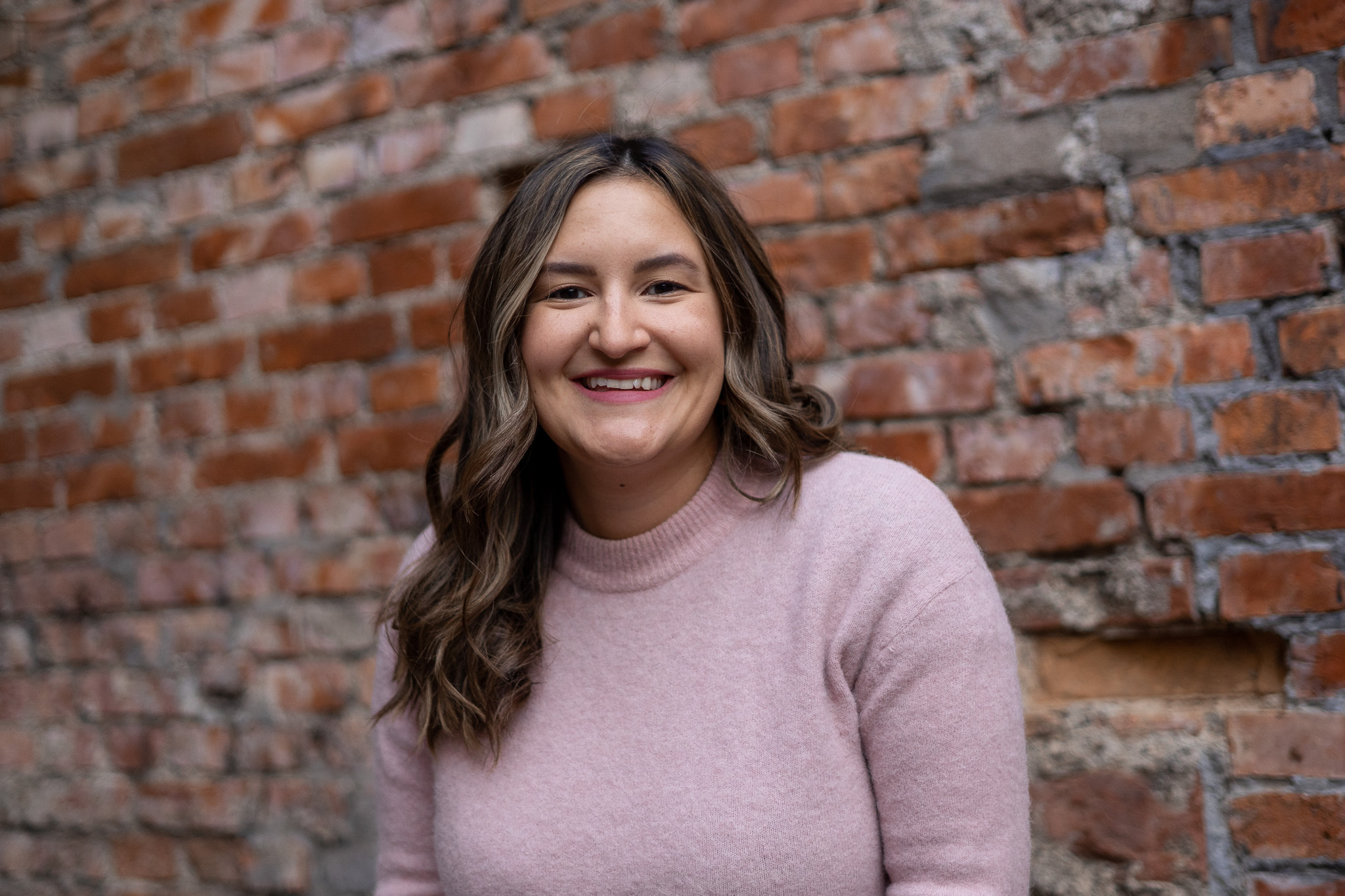
“We look forward to continuing to build a platform together with the board where sustainable, groundbreaking innovations can move from idea to implementation – faster and smarter,” concludes Sara Hamlin.
For more information, please contact:
Sara Hamlin, CEO Ignite Sweden
sara@ignitesweden.org
+46 (0)70 282 91 78
Ignite Sweden has officially surpassed 8000 tailored matchmaking meetings, creating real business value for Swedish startups beyond just customer connections.
Since our inception in 2017, Ignite Sweden has been dedicated to bridging the gap between innovative startups and established corporations and public sector organizations. With over 8000 high-quality, one-on-one facilitated meetings and more than 700 commercial collaborations, our initiative has not only opened doors to potential customers but also fostered significant growth and development for Swedish startups across multiple dimensions.
“Through our qualitative matchmaking process, startups have not only secured deals but have also gained invaluable insights, resources, and credibility that propel them toward sustainable growth,” says Yasmine Morrison, Startup Partner Manager at Ignite Sweden.
Driving Startup Growth Through Strategic Business Matchmaking
What happens when a startup meets the right corporate or public sector partner and they develop a collaborative project together? With that premise in mind, Yasmine embarked during the past months in the mission to find out the effects of these collaborations from the startup perspective, beyond the deal itself.
Through a series of interviews with numerous startups over several months, she gathered insights into the real impact of the collaborations initiated through Ignite’s matchmaking process. Her findings reveal that these strategic innovation partnerships often lead to much more than just signed contracts — they help startups refine their internal processes, validate their innovations, attract investment, and gain strategic clarity and credibility.
“What stood out in every conversation was that these collaborations create value in so many different ways,” says Yasmine. “It’s not just about closing a deal — it’s about gaining market insights, validating solutions, securing strong customer references, expanding into new markets, and even growing the team to meet increased demand.”
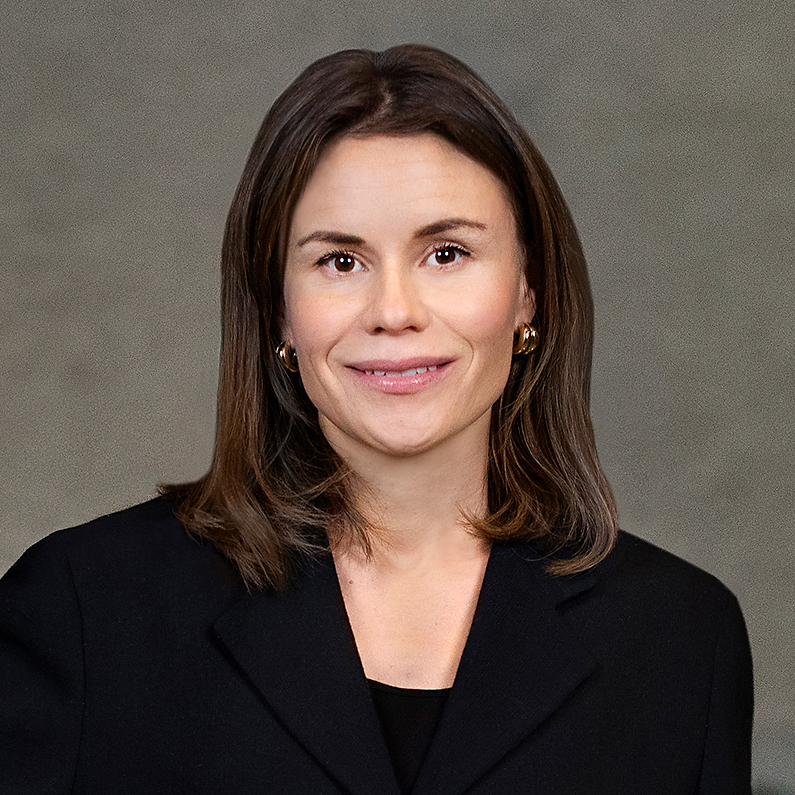
8 Business Outcomes for Swedish Startups Enabled by Ignite’s Matchmaking Process
The interviews with startups clearly demonstrated that the collaborations initiated through Ignite’s matchmaking meetings generate lasting value in areas essential to startup growth and long-term development.
The following outcomes reflect the tangible value Ignite’s matchmaking process has created for Swedish startups:
Customer Base Growth: The insights and connections gained through Ignite-facilitated collaborations have enabled startups to diversify and expand their customer base. Securing a well-known brand as a customer has also strengthened their market credibility and opened doors to new business opportunities.
Innovation Development and Validation: Collaborations with larger entities have enabled startups to test and improve their solutions in real-world settings, helping to confirm product-market fit. These engagements have also supported teams in refining internal workflows and adapting their offerings to better meet market needs.
Market and Customer Insights: Collaborations have deepened startups’ understanding of customer needs and market dynamics, leading to more tailored and relevant solutions. They have also helped startups identify the most promising and profitable markets and segments, and develop strategies better aligned with market demands.
International Expansion: Ignite’s country-focused matchmaking initiatives have enabled startups to start international collaborations, opening doors to new markets. These partnerships have supported startups in establishing a presence abroad and scaling their operations beyond Sweden.
Investor Readiness: Successful collaborations with large companies or public organizations boost a startup’s credibility and serve as a quality endorsement. This validation enhances their appeal to investors and increases the likelihood of attracting new funding.
Customer-Funded Development: Several deeptech startups were able to fund parts of their product development through these partnerships. This reduced financial risk and enabled faster progress in bringing their solutions to market.
Public Procurement Opportunities: Through pilot projects with municipalities, publicly owned companies, and other public entities, startups gained the opportunity to participate in public procurement processes, unlocking greater business potential and enabling long-term opportunities.
Team Growth: Successful collaborations often lead to increased demand, prompting startups to strengthen their teams with new talent to support delivery and continued expansion. This growth not only boosts the startups’ ability to scale but also contributes to job creation and strengthens Sweden’s position as a hub for innovation and entrepreneurship.
Ignite Sweden is part of the newly launched cross-border project aiming to connect Nordic startups with public sector organizations in Finland, Iceland, and Sweden.
Societies and the public sector across the Nordics are facing growing challenges in keeping up with societal shifts, from healthcare strains to urbanization and sustainability demands.
Recognizing the potential of Nordic startups to help solve these challenges, Ignite Sweden has joined forces with Fjársýsla (the Financial Management Authority of Iceland), Business Finland, supported by VTT (Technical Research Centre of Finland), in the project Nordic Govtech Alliance.
Strengthening Innovation-Driven Public Procurement
Funded by the Nordic Council and supported by Vinnova, the goal of this cross-border pilot project, which will run until summer 2026, is to develop a sustainable process and long-term collaboration model that extends beyond the pilot phase and includes all Nordic countries.
One of the key objectives of the project is to explore a shared strategy and best practices for procuring innovative solutions from Nordic startups. By fostering closer collaboration between public sector need owners and innovative startups, the initiative aims to create a more efficient and scalable model for integrating cutting-edge technology into public services.
“We will facilitate tailored one-on-one meetings between public sector representatives and startups and scaleups with relevant solutions from all three countries. These meetings will be held digitally to ensure cross-border participation, but there may also be opportunities for follow-up meetings in Sweden, Finland, or Iceland if both parties see value in further discussions,” explains Niklas Sikström, Project Manager at Ignite Sweden.
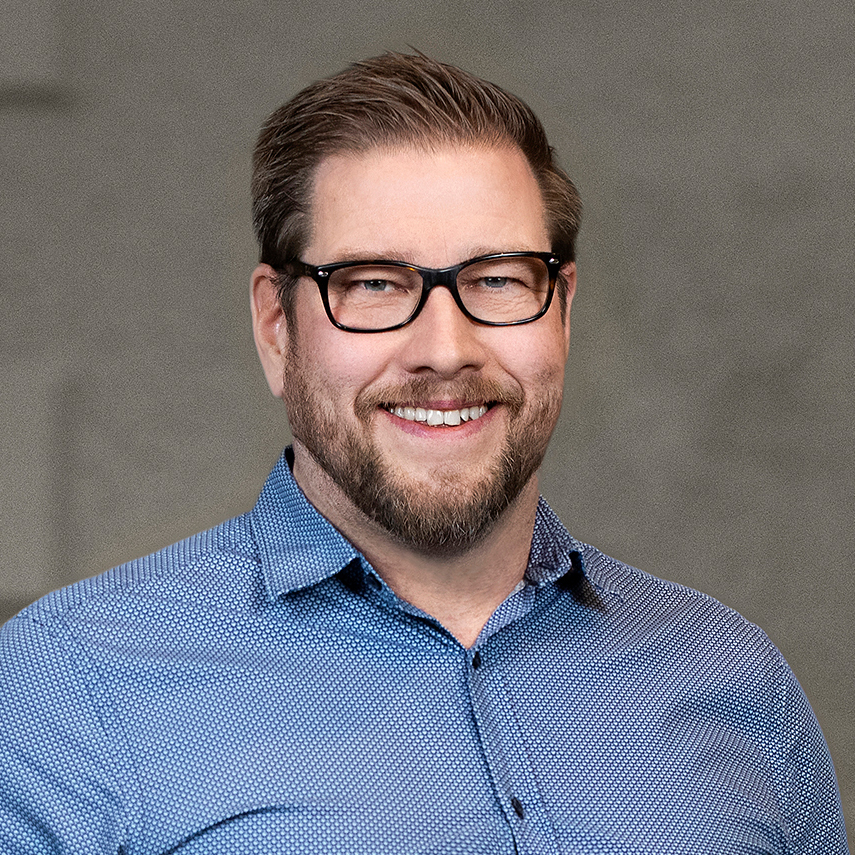
A Unique Opportunity for Startups to Enter the Public Sector
The recruitment of both public sector organizations and startups with solutions to address their challenges is now in full swing across Sweden, Finland, and Iceland.
Public organizations from across the Nordic region, including the Swedish Uppsala Municipality, Norrköping Municipality, HBV, and Region Dalarna, have already joined the initiative and will engage in the matchmaking process.
The initiative is also looking for startups and scaleups with solutions in the following areas:
- Healthcare & e-health
- Proptech & sustainable housing
- Energy & electrification
- Smart cities & urban development
In Parallel with Key Conferences Across the Nordics
To support these connections, Nordic Govtech Alliance will host a series of activities during three high-impact conferences in 2025, providing a platform for key stakeholders to meet, discuss challenges, and explore potential collaborations:
- Iceland Innovation Week (May 11-13 | Reykjavik, Iceland)
- UIC Innovation Night (September 23-25 | Uppsala, Sweden)
- Slush (November 17-19 | Helsinki, Finland)
During these conferences, the initiative will bring together public sector organizations, startups, and key players from the Nordic innovation ecosystem to accelerate the adoption of innovative solutions.
For more information on how to get involved, join the Nordic Govtech Alliance LinkedIn group or sign up for the newsletter.
The first edition of Battery Tech Matchday showcased the power of strategic matchmaking in accelerating battery technology innovation.
Organized by Ignite Sweden in collaboration with the Swedish Energy Agency, Eskilstuna Municipality, Electrification Hub, and MITC – Mälardalen Industrial Technology Center as part of the Swedish Battery Arena, Battery Tech Matchday provided a platform for innovation across the entire battery value chain.
A total of 27 pioneering startups participated in the event, presenting solutions that tackled key industry challenges —ranging from charging optimization and energy storage to recycling and grid flexibility— spanning different stages of the battery lifecycle.
Their cutting-edge technologies captured the interest of 10 leading corporations —including E.ON, Alstom, Epiroc, Toyota Material Handling Europe, and Hitachi Energy— keen to explore potential collaborations and new innovations in the battery sector.
Through Ignite Sweden’s curated matchmaking process, the event facilitated 60 qualitative 1:1 meetings, enabling startups and corporates to engage in targeted discussions on potential collaborations.
Michell Hanna, Project Manager at Ignite Sweden, emphasized the importance of these tailored interactions in creating real collaboration opportunities:
“This event was not just about meetings — it was about creating the right conditions for meaningful conversations between startups and corporates. By ensuring that both parties were well-matched and prepared, we aimed to maximize the potential for real partnerships to emerge.”
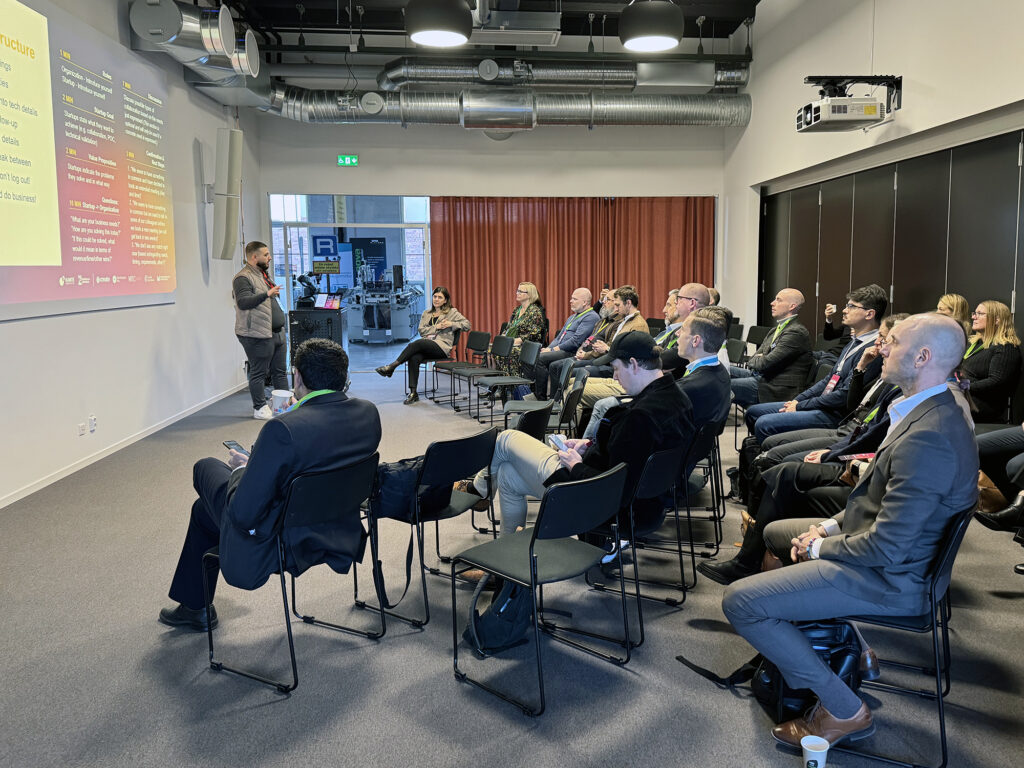
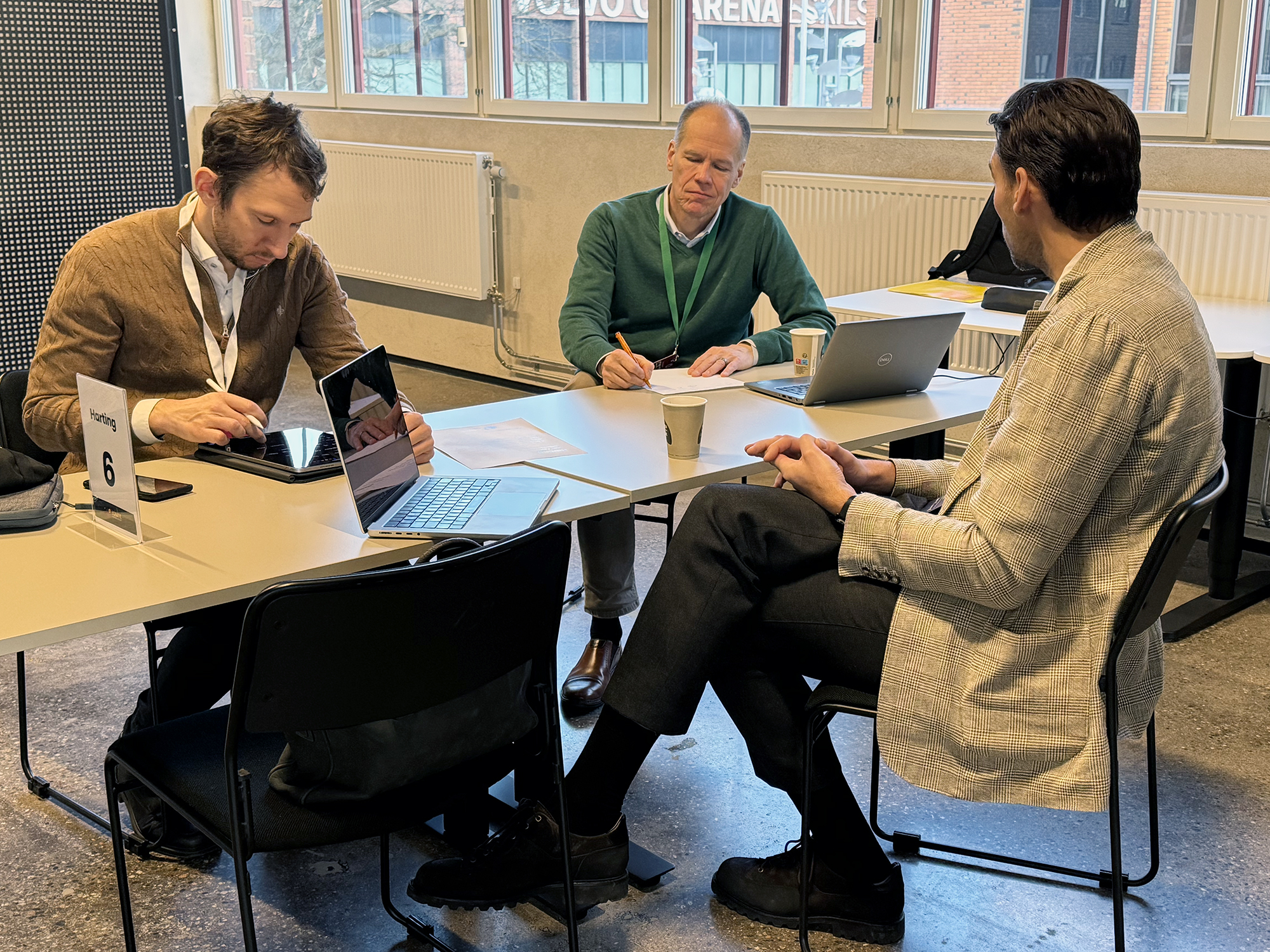
Startups Delivering Cutting-Edge Solutions
For startups, the event was a unique opportunity to present their solutions to key industry players. Among them was Bright Day Graphene, whose biobased graphene material could extend battery lifespan by at least three times.
“Even if you have a great technology, you still need to work on the market side,” said Malin Alpsten, CEO & Co-founder of Bright Day Graphene. “Collaborating with corporates is always important for a startup. We need to create the market for our material and the big corporates are the customers.”
Stefano Cucchiella is the CTO and co-founder of CanaryBit, a cybersecurity startup that enables secure AI analytics, ensuring third-party applications can safely process and collect insights from battery data for reuse and optimization while preserving ownership and control over the data.
He emphasized the value of the interactions with potential customers at matchmaking events like Battery Tech Matchday:
“Events like this one are very helpful for us to have close contact with big organizations, build relationships, and then move forward to potential projects. I think our meetings today have been quite successful. We had a few meetings to the point, and we’re going to have follow-ups in the coming days and weeks. So all in all, it’s been a successful day.”
Connecting Startups with the Right Decision-Makers
Another participating startup was Recap Power, which develops an energy management platform that maximizes the benefits from flexible energy resources like battery systems, helping their customers lower their energy costs and creating new revenue streams.
Its CEO, Jonas Thyni, highlighted how matchmaking connects startups with the right decision-makers in large corporations:
“I met with some interesting corporates, and I think we have good potential for cooperation with some of them. One of the biggest values that Ignite Sweden brings is getting the connections with the right people. I had meetings where I finally spoke to the exact person I had been looking for.”
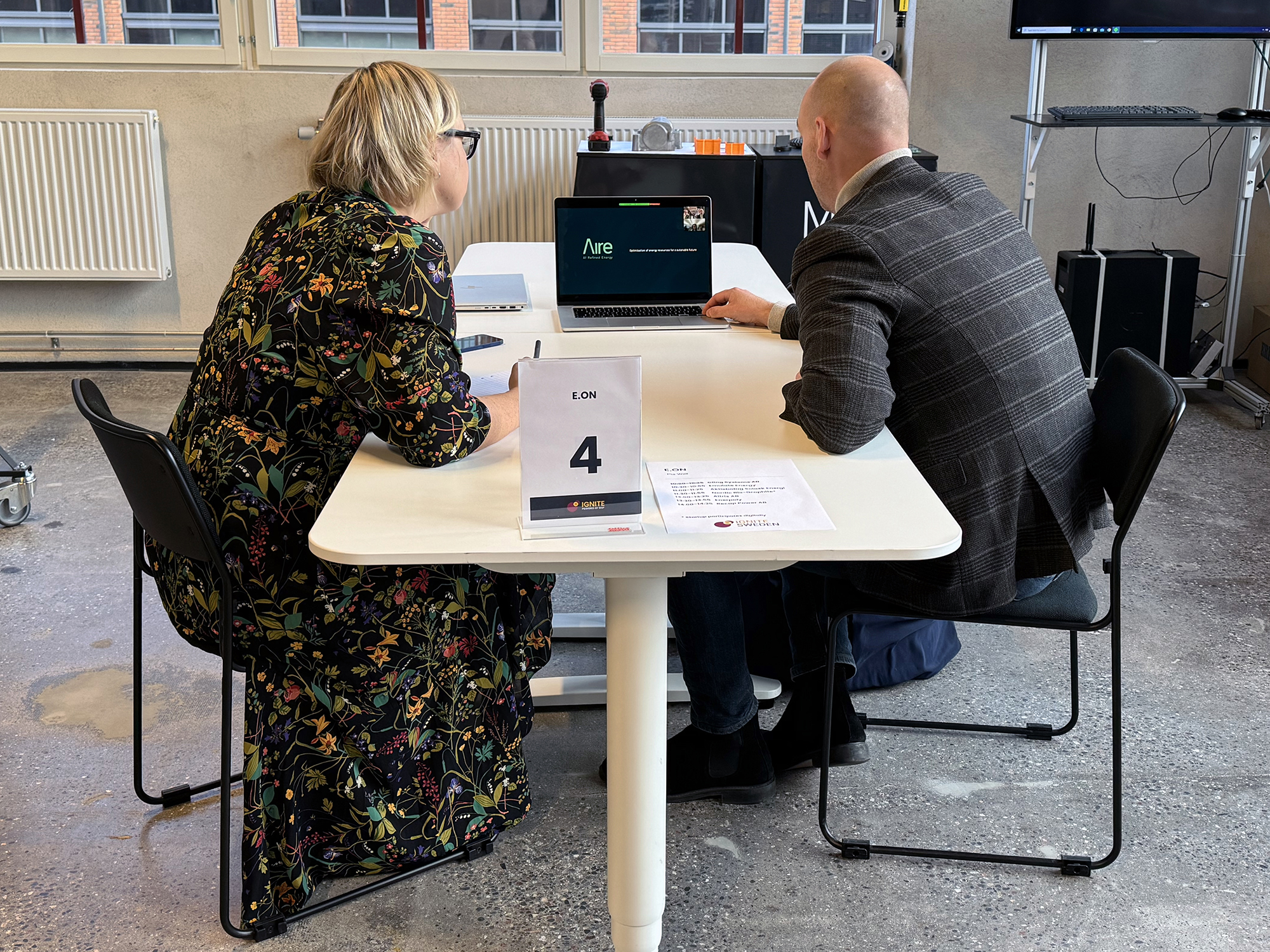
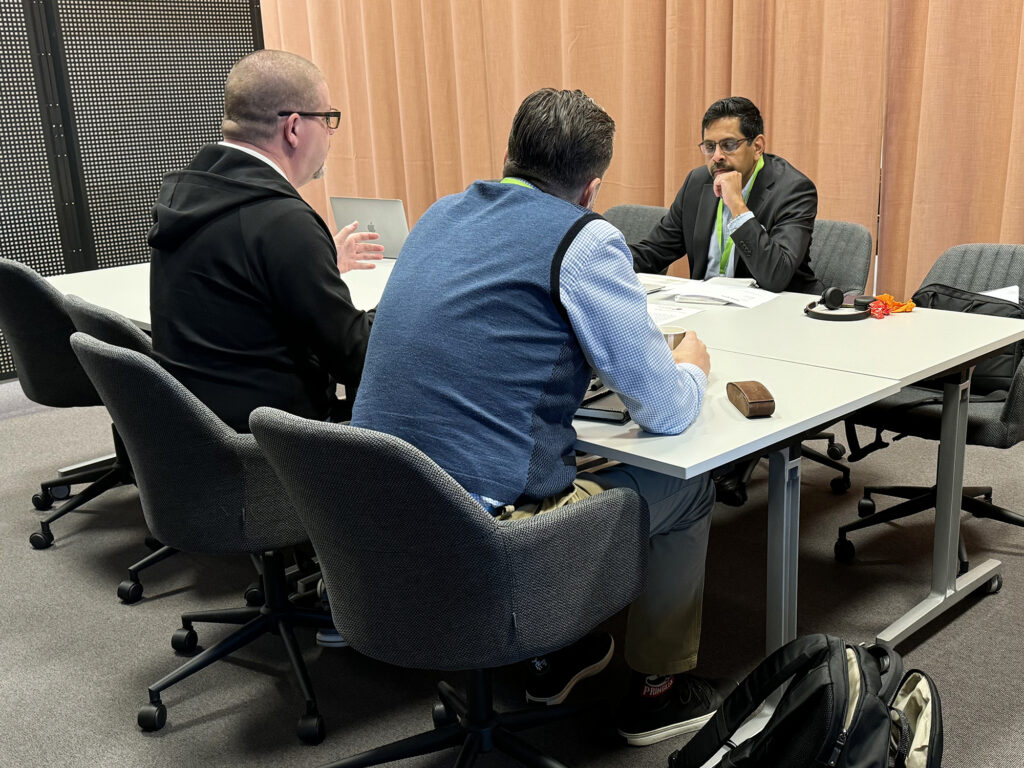
Corporates on the Lookout for Innovation
Battery Tech Matchday was equally beneficial for corporate participants, who gained insights into emerging solutions and engaged with startups driving change in the industry.
Katarina Öquist, Global R&D Technology & Innovation Manager at Epiroc, stressed the strategic advantage of participating:
“We can’t invent everything by ourselves. We need to go out and scout for new technologies, and this was a great way to do it. Events like this give us the opportunity to build relationships and scout for innovation in an efficient way.”
“The meetings we had were really good. The startups were well prepared, and we had really valuable discussions,” noted Katarina.
Laying the Groundwork for Future Collaborations
Electrification Hub is an innovation accelerator driving the transition toward electrified mobility solutions by supporting early-stage technologies and advancing them from prototype to implementation. Its CEO, Mikael Hjorth, actively participated in several meetings between some of its corporate partners— including Hitachi Energy, Alstom, and Harting— and startups throughout the day.
He observed firsthand how well-prepared startups were and how corporates approached discussions with openness and a clear interest in potential collaborations.
“The startups had prepared and looked into use cases or examples where the bigger corporates could use their technologies, and the corporates were open to exploring ways of working together.”
Battery Tech Matchday demonstrated that collaboration between startups and large corporations is key to driving new technologies in the battery sector. The connections made during the event have the potential to spark transformative projects that will benefit the entire industry.
Ignite Sweden has been named one of Europe’s top startup hubs in the Europe’s Leading Start-up Hubs 2025 ranking, compiled by Statista, the Financial Times, and Sifted. The ranking highlights the most recommended and top-rated startup programs with the strongest track record.
“Startups play a crucial role in solving global challenges, and we are proud to be recognized as a leading hub that connects them with the right partners to scale their impact. Being included in this ranking is a testament to the strength of our process and the meaningful collaborations we foster,” says Sara Hamlin, CEO of Ignite Sweden.
Ignite Sweden is one of seven startup hubs from Sweden featured in the ranking. The other six are GU Ventures, KTH Innovation, Minc, SSE Business Lab, Sting, and Uppsala Innovation Centre.
“For startups, the right connections can be game-changing. This recognition reaffirms our mission to open doors to new business opportunities and accelerate their growth,” says Yasmine Morrison, Startup Partner Manager at Ignite Sweden.
About the Ranking
Now in its second edition, the Europe’s Leading Start-up Hubs 2025 ranking recognizes 150 European hubs across 28 countries.
“Europe’s startup scene is growing. The number of incubator and accelerator programs are also growing. All these programs promise support for people who intend to found a company or provide the relevant means to scale it. Yet accessing information about their quality can be challenging,” explains the team behind the ranking. The goal is to identify and highlight the best-evaluated and most recommended programs across the continent.
The ranking is based on three key criteria: evaluations from alumni, recommendations from external experts, and the track record of each hub, measured by the success of top startups that emerged from its programs.
Click here to explore the Europe’s Leading Start-up Hubs 2025
The new release of the curated platform showcases 542 Swedish environmental startups and scaleups.
The latest update of the Swedish Climate Startup Map, released today, features startups and scaleups from across Sweden driving the green transition with cutting-edge technologies, products, and services.
The new 69 climate companies in the platform offer a diverse array of technologies for a wide range of sectors, including agriculture, construction, energy management and storage, food, forestry, industry, manufacturing, recycling, renewable energy, sustainable materials, and water.
“2024 has officially become the warmest year on record, surpassing the critical 1.5°C threshold set by the Paris Agreement. The urgency for climate and environmental innovation has never been greater. With this launch, we are shining a spotlight on the latest addition of 69 climate startups and scaleups, along with all the other companies featured on the Swedish Climate Startup Map, driving the transition forward,” says Project Manager Jenny Heden Malm.
About the Swedish Climate Startup Map
The Swedish Climate Startup Map aims to provide a platform for groundbreaking companies driving the green transition, enhancing their visibility and helping them attract investment, customers, and talent to scale their technologies.
The project was initiated by Sting in 2020 as part of Startup Climate Action, funded by Vinnova, to showcase innovative startups working towards creating change and solving our many climate challenges.
The Swedish Climate Startup Map is led by Chalmers Ventures, Dalarna Science Park, Ignite Sweden, LEAD, SISP – Swedish Incubators & Science Parks, and Sting. The initiative was originally part of Omställningslyftet, a project co-funded by the European Regional Development Fund, Tillväxtverket, and Vinnova. Today the initiative is part of Startup Energy Action, funded by the Energimyndigheten.
Click here to visit the website and explore the Swedish Climate Startup Map
Click here to apply for becoming part of the Swedish Climate Startup Map
These are the 69 startups and scaleups added to the Swedish Climate Startup Map
AGRICULTURE, FOOD AND FORESTRY
Agteria Biotech
Aquafood
Casamancéa (CashewMeetly)
Cinis Fertilizer
Envigas
FoodFacts Sweden
Green and Growing
Green City Farming Sweden AB
Green-On
Nordic Forestry Automation
Seaqure Labs
SolEdits
SonicFlora
Svepreg
SweGreen
CARBON CAPTURE AND STORAGE
Klimatskoga
Korall Carbon Capture
Planboo Eco
CONSTRUCTION AND REAL ESTATE
AI Bob
Energismeden Re-eko
IsoTimber
Woodbe
Wood Tube
CROSS INDUSTRY
Avalma (Jubel.ai)
Batixt
ENERGY MANAGEMENT AND STORAGE
ATO Energy
Blykalla
Catator
Comsys
Fifty Holdings
Greenco Tech
NanoScientifica
SaltX Technology
Tech Innovation
TEXEL Energy Storage
Varmi Scandinavia
ENVIRONMENT AND RESOURCES
Adsorbi
Otag Regenerative Ag (Regensense)
Spritju
INDUSTRY AND MANUFACTURING
Drev
EnginZyme
Syre
MOBILITY AND TRANSPORTATION
PicApp
Railfinder
RECYCLING AND WASTE
Fiberloop
RecoMended
Recycla
RENEWABLE ENERGY
Caplyzer
Eontra
HyEnGen
Novatron
Trine
SUSTAINABLE MATERIALS
Biosorbe
Blue Ocean Closures
Bright Materia
Cellufy
Ecohelix
Ekolution
EVLR International
GAIA Biomaterials
Nordic Bio-Graphite
Papershell
WASTEWATER AND WATER
MNH Solutions
Nordic Renew Resource
Swedish Hydro Solutions
OTHER SECTORS
GoClimate
Green Dent
Hypex Bio Explosives Technology
PandionAI
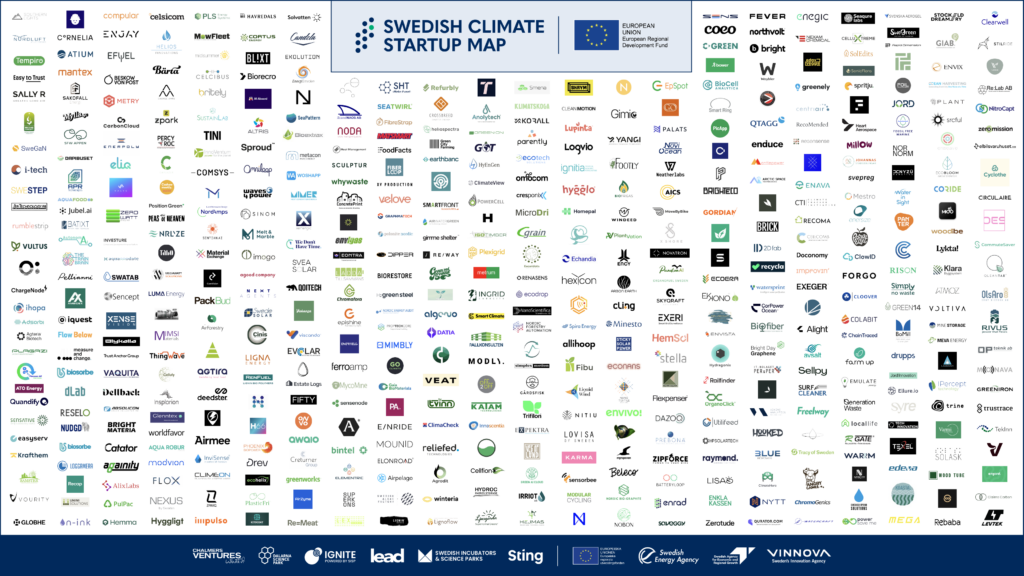
As this year comes to an end, we reflect on Ignite Sweden’s results and achievements from 2024.
2024 was a remarkable year for Ignite Sweden, filled with growth, new opportunities, and key milestones that have strengthened our ability to foster impactful innovation startup collaborations.
Among the most significant achievements was becoming an independent entity subsidiary of SISP – Swedish Incubators and Science Parks. This new organizational structure, complete with a dedicated board of directors, provides a stronger foundation for growth and allows us to focus more sharply on helping startups secure their first customers in both the private and public sectors.
This year also marked the beginning of a new chapter in leadership with Sara Hamlin appointed as CEO. Her strategic vision and fresh energy have already set the stage for an exciting future.
Another major highlight was securing three years of funding from Vinnova through the Ignite Impact project. This critical funding allows us to scale our efforts, facilitating at least 240 new innovation collaborations while continuing to strengthen Sweden’s position as a global innovation leader.
“2024 was a pivotal year for Ignite. Becoming a standalone organization with core funding from Vinnova enables us to think long-term and strengthen our impact. I’m incredibly proud of what we’ve achieved together with our partners and startups, and I’m excited for what lies ahead,” says Sara.
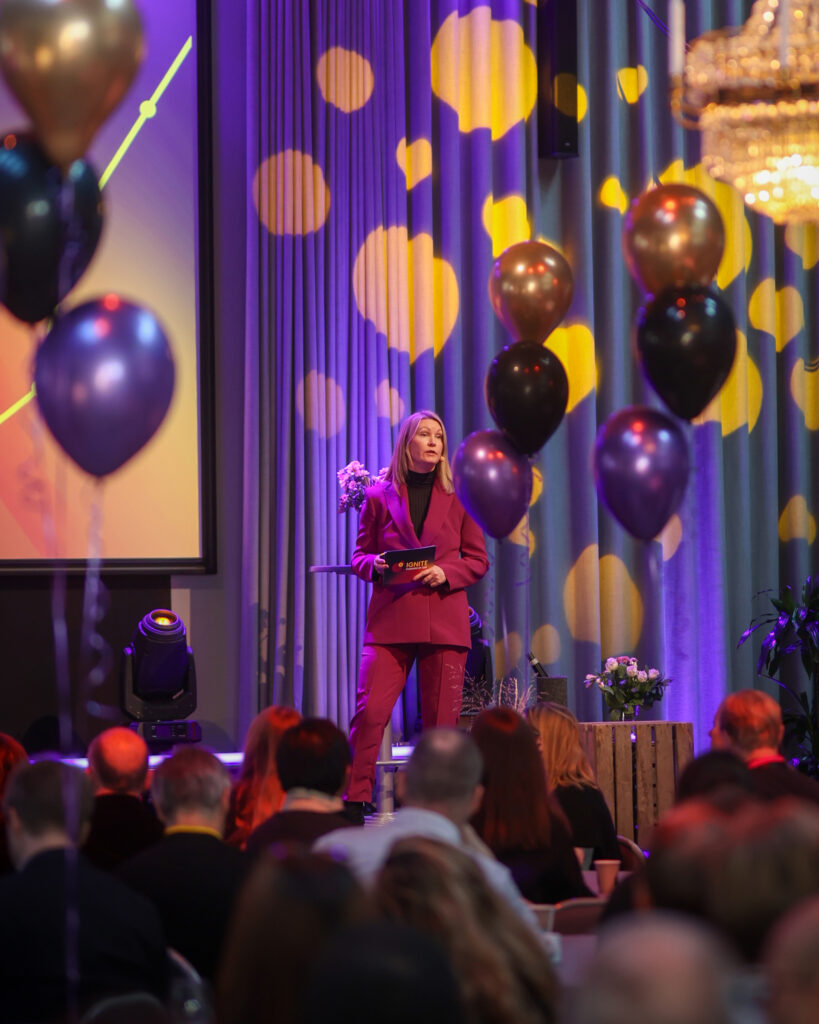
Connecting Startups to New Opportunities
In 2024, Ignite orchestrated 1,131 one-on-one tailored meetings between startups and more than 130 potential corporate and public customers. At least half of these interactions progressed to further discussions aimed at initiating joint projects, resulting in 105 commercial collaborations between startups, corporates, and public entities throughout the year. This brings the total number of startup partnerships facilitated by Ignite to 710 since the initiative’s inception in 2017.
An impressive 515 startups were matched with potential customers throughout the year, with nearly 50% of them being introduced to potential customers through Ignite for the first time. Notably, 54% of the startups engaged have participated in a Swedish incubator program, reflecting Ignite’s strong partnerships with 33 incubators and science parks nationwide.
The majority of participating startups are driving innovations in the environment and energy sectors (35%), followed by industrial technologies (29.09%) and software/ICT (16.82%), with notable contributions from life sciences (9.09%) and smaller representations in entertainment (3.64%), agriculture (3.64%), and other industries (2.73%).
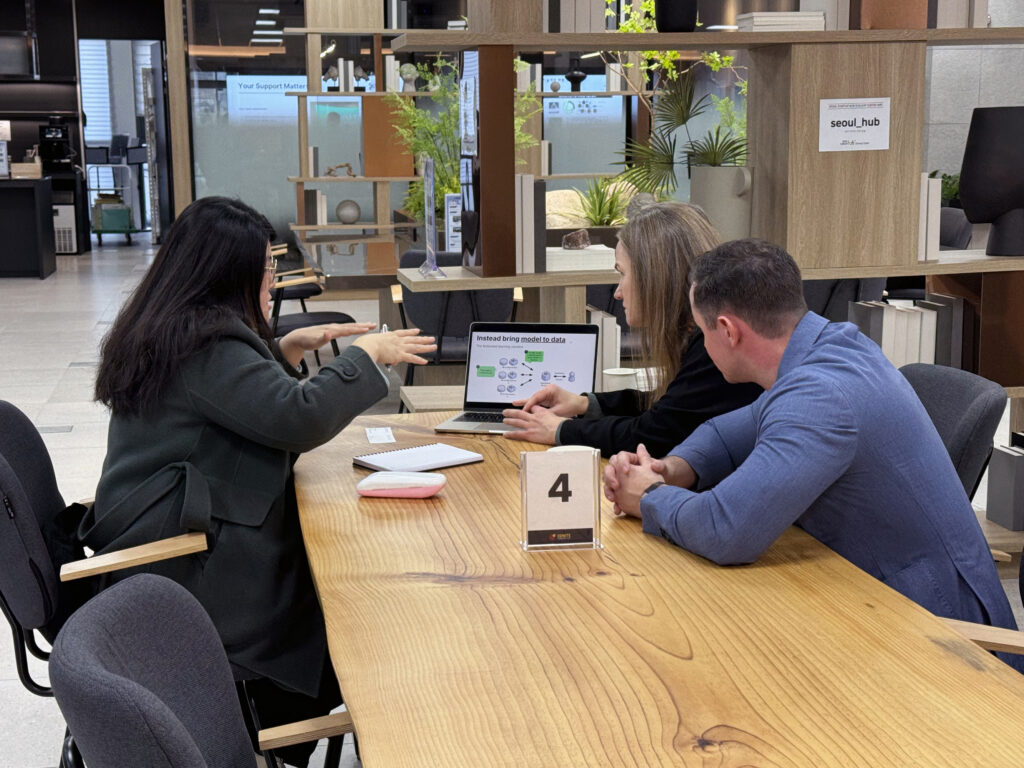
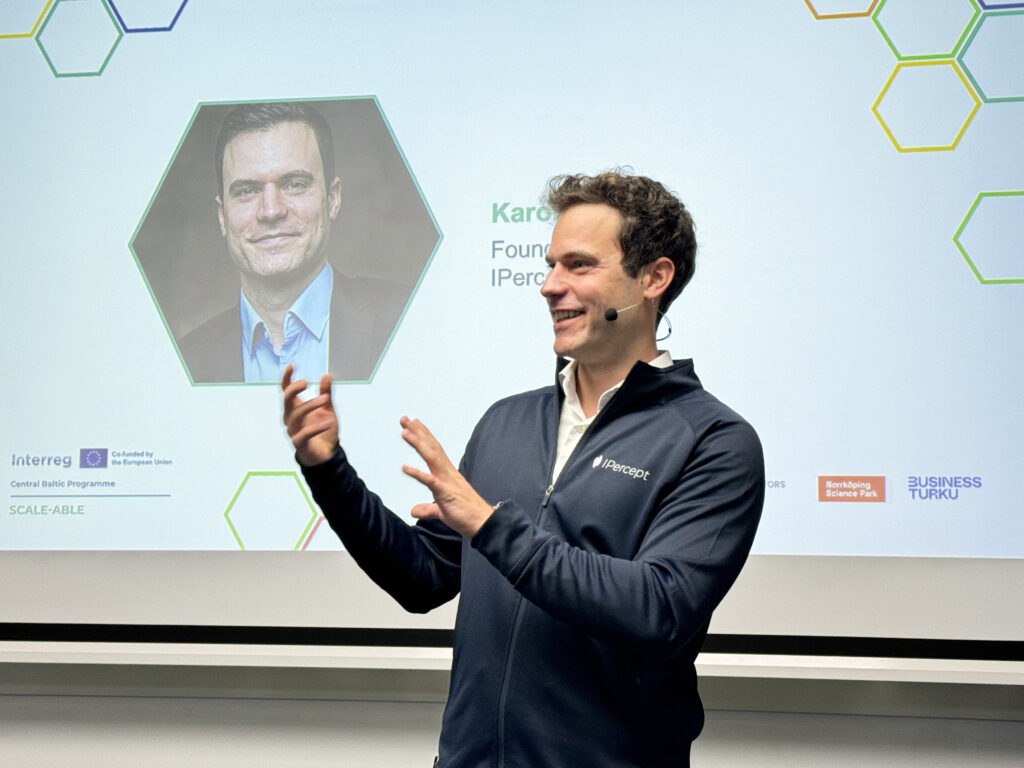
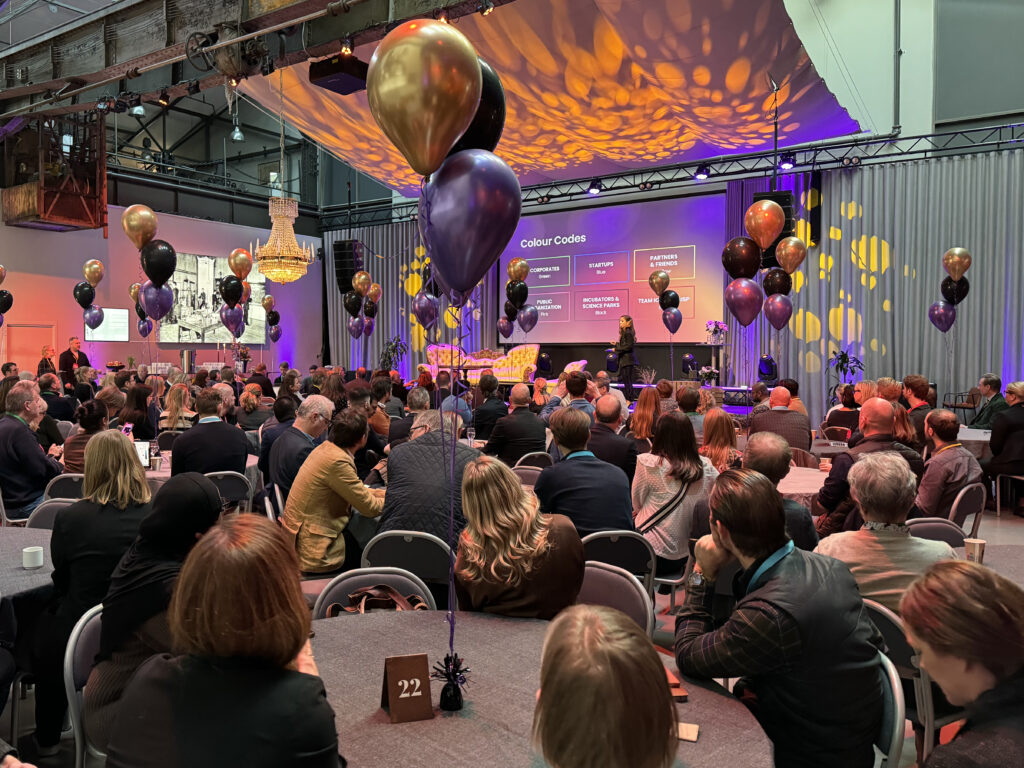
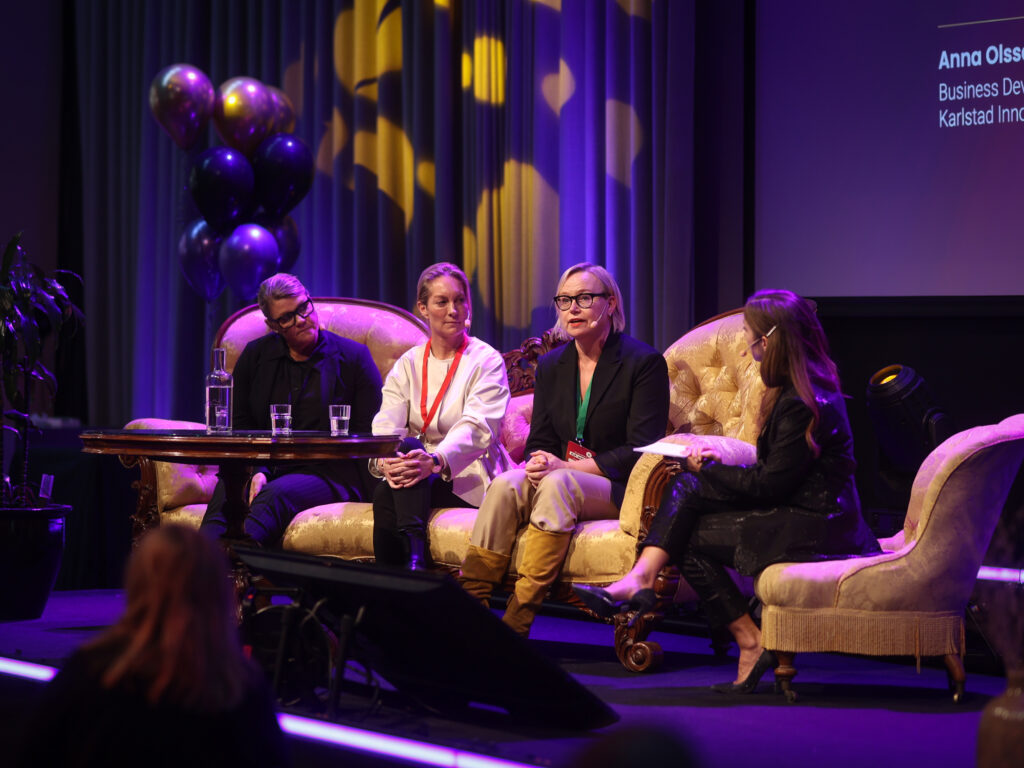
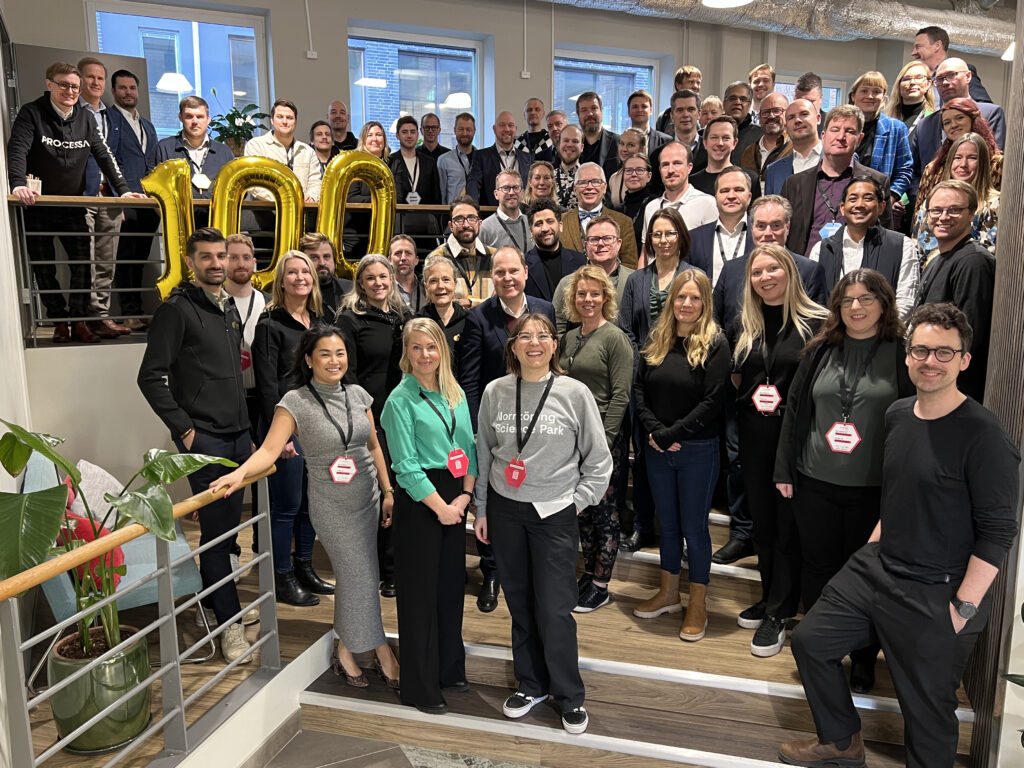
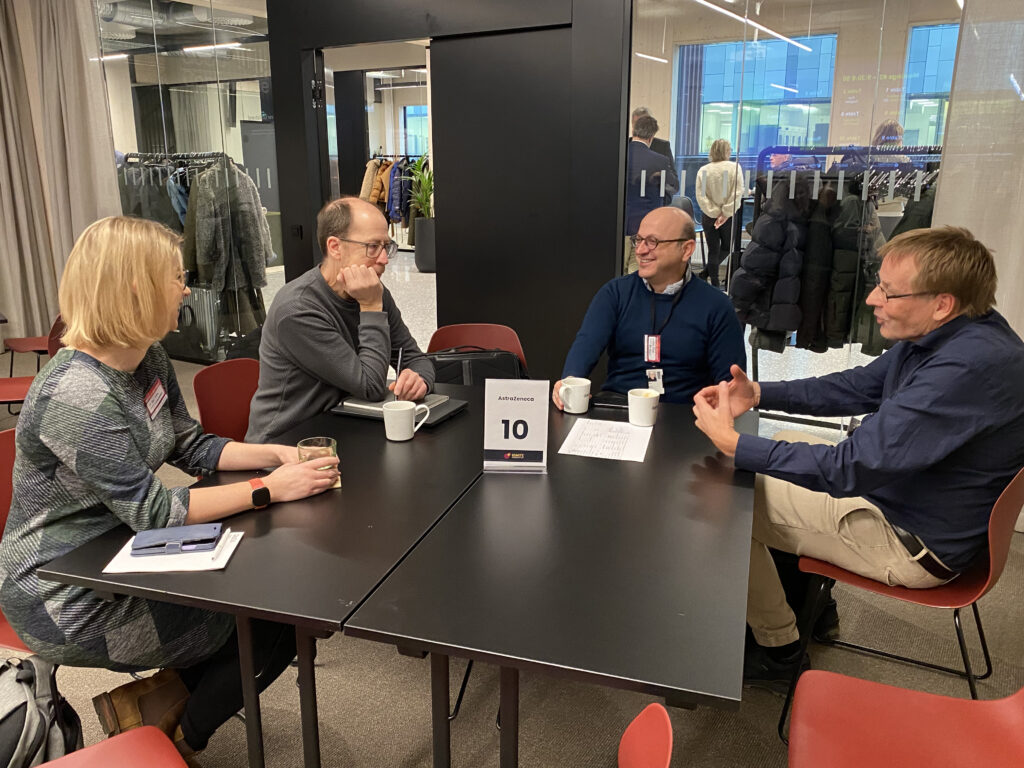
Supporting Startup Value Creation
This year, we also explored the broader impact of our process beyond measurable outcomes. Through interviews led by our Startup Community Manager, Yasmine Morrison, we uncovered how Ignite has created value to startups at every stage of development.
From early technology validation and first customer relationships to market entry opportunities, the Ignite process has also enabled startups to secure reference customers, enhance internal skills, attract investment, expand networks, drive innovation, and gain critical customer and market insights.
“This year, we’ve seen startups validate their innovations faster, access their first customers, and take steps toward scaling internationally. The Ignite process continues to prove its value as a critical bridge between startups and established organizations,” says Yasmine.
Advancing Startup Internationalization
Ignite continues to pave the way for startups to access international markets, achieving significant milestones in its internationalization efforts and reaffirming our commitment to fostering cross-border business opportunities for Swedish startups.
This year, Ignite facilitated matchmakings with corporates representing 17 countries, showcasing its expanding global reach. This included four digital sessions and a record eight in-person matchmakings, featuring delegations to South Korea (twice), Switzerland, France, Canada, Brazil, and, for the first time, Singapore. Additionally, Ignite hosted the third edition of the European AI Startup Matchday in June, connecting corporates with startups featured on the AI Startup Landscape.
The start of 2024 also marked the first matchmaking events of the ScaleAble Project, a 2.5-year initiative funded by the EU’s Central Baltic Interreg Programme. This year, events were held in Norrköping and Stockholm, with another planned for May 2025 in Tallinn. The project aims to foster cross-border collaborations between corporates and scaling companies in Estonia, Finland, and Sweden, promoting regional innovation and growth.
“2024 marked our most impactful year yet in supporting Swedish startups to bring their innovations to the global stage. Facilitating 453 meetings between 245 startups and 65 corporates across 17 countries is astonishing. In 2025 I look forward to building on the basis we have to create even more strategic opportunities for startups to scale internationally,” says Elijah Aldana, Head of International Partnerships.
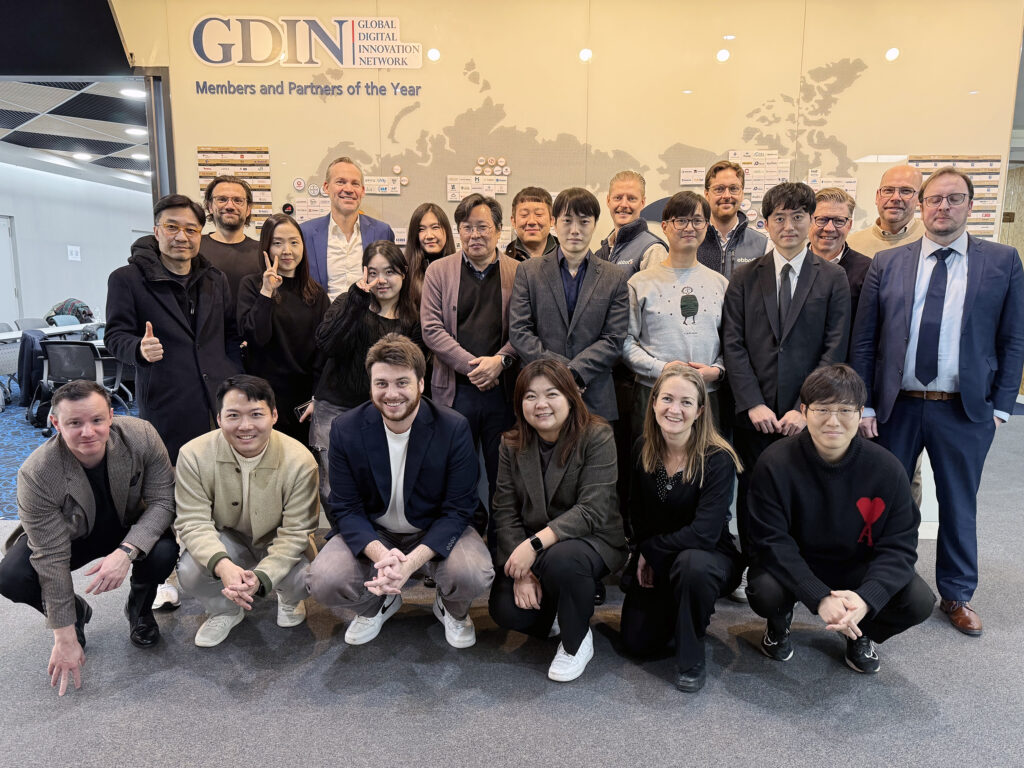
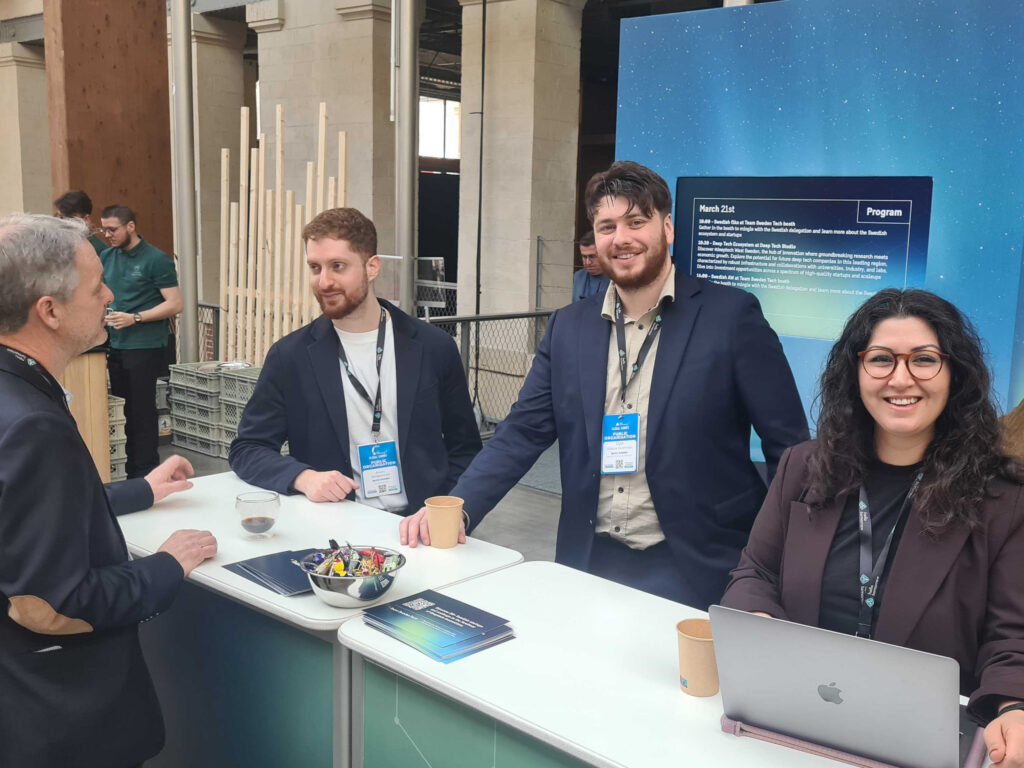
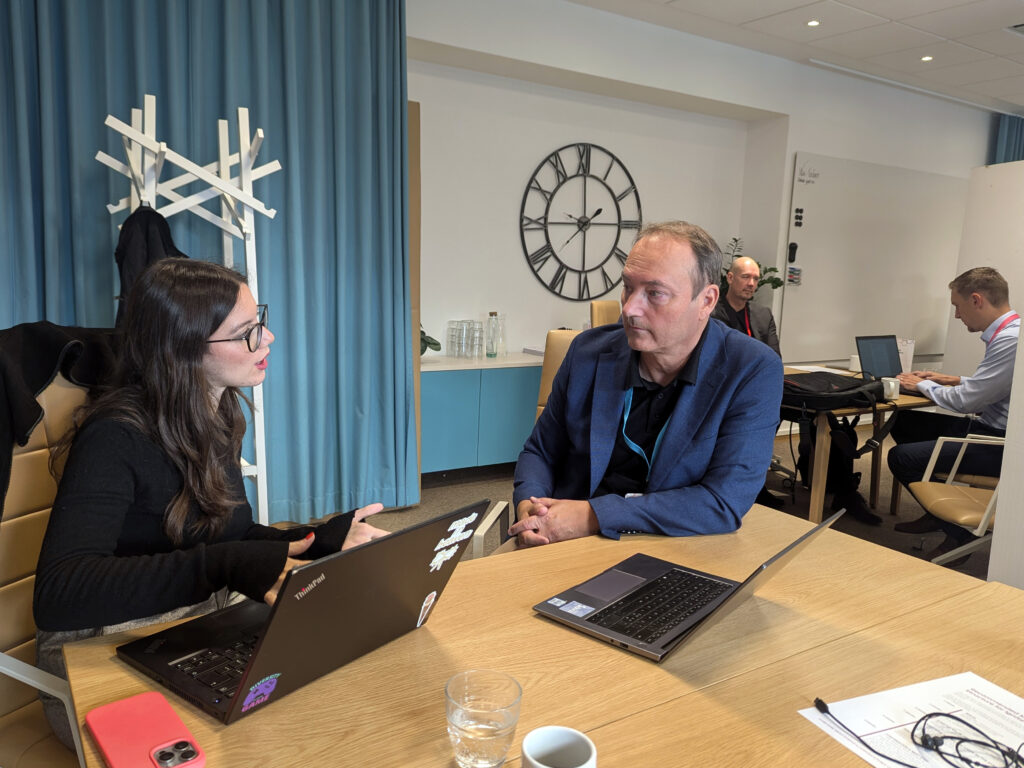
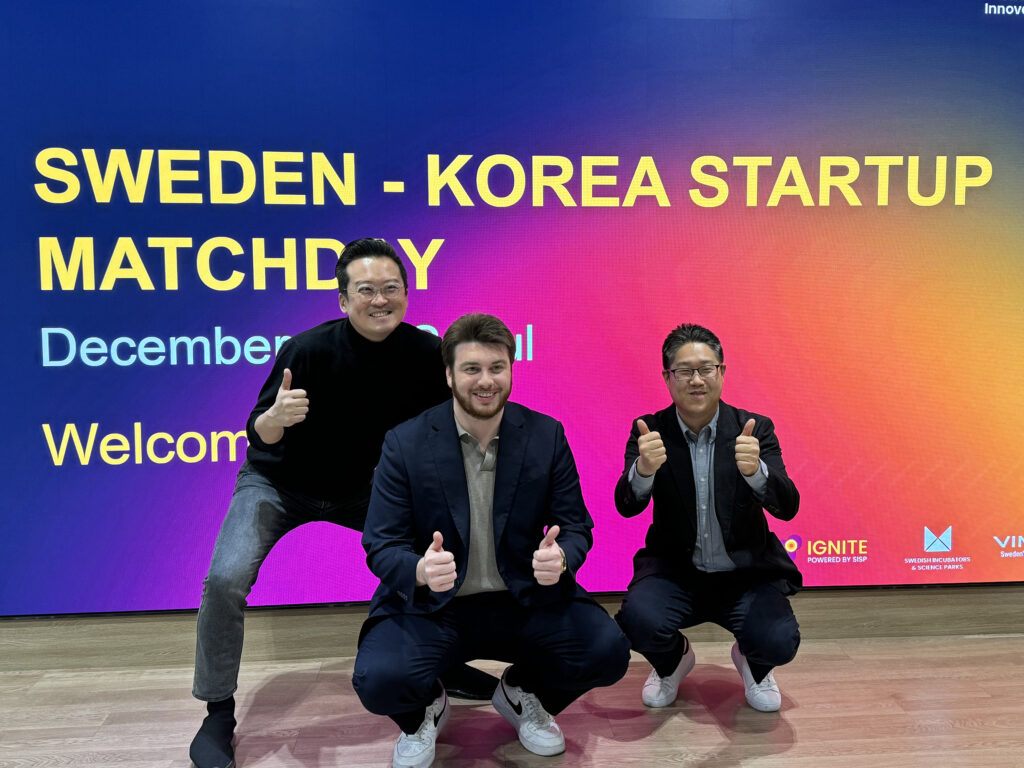
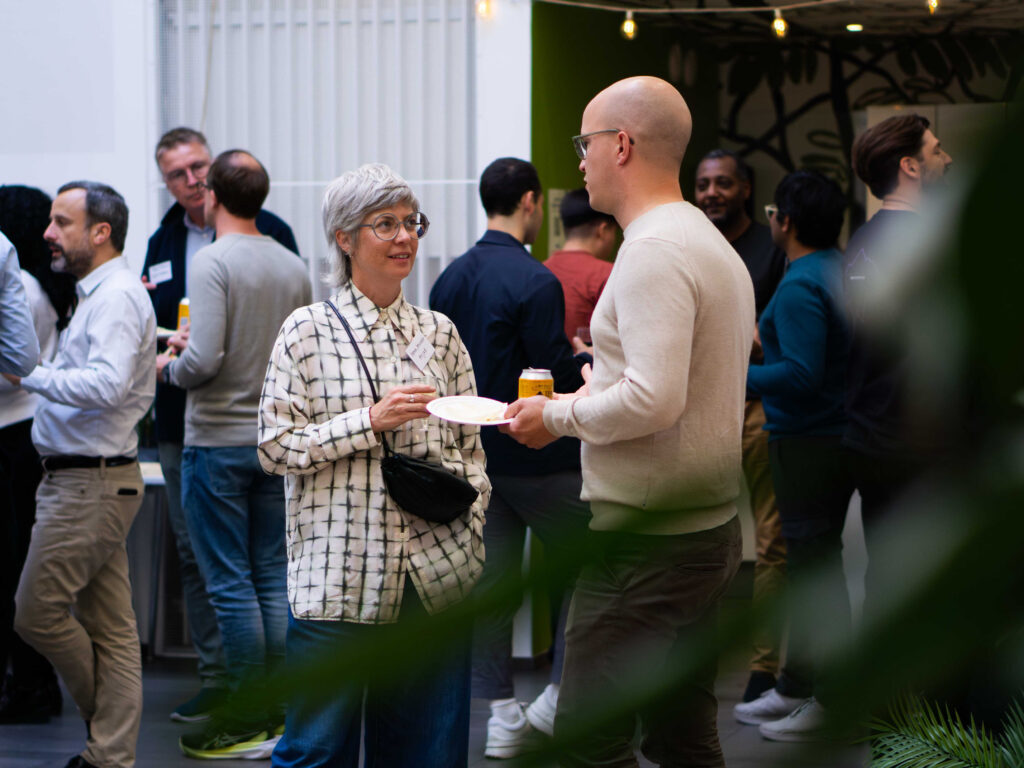
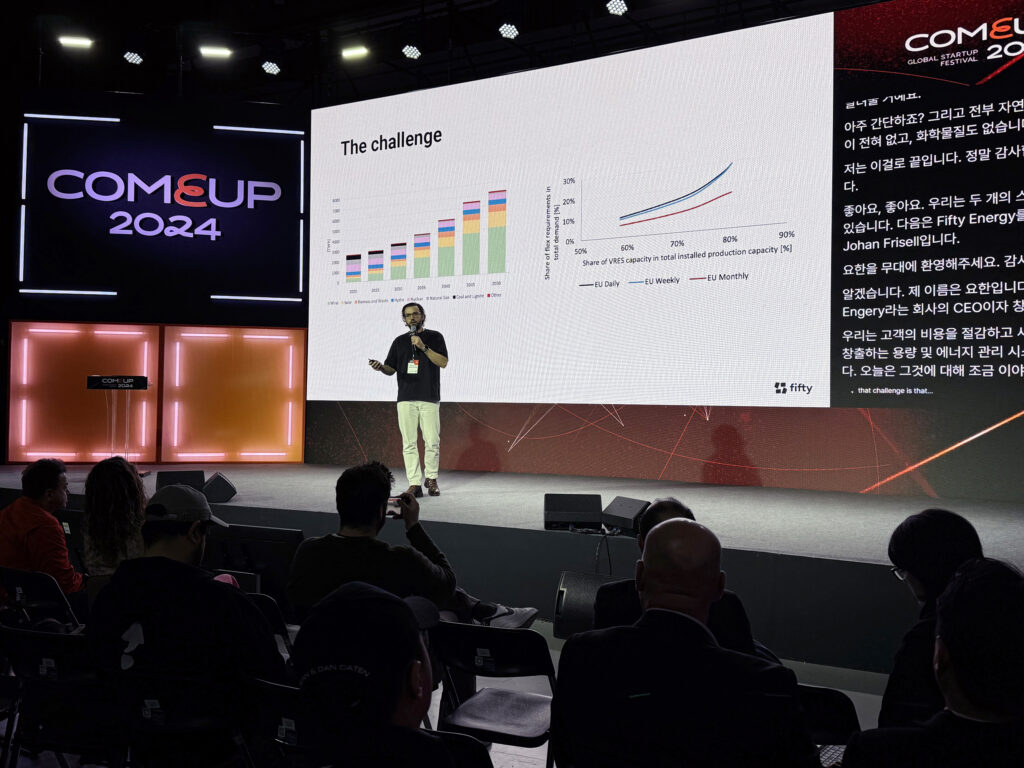
Looking Ahead to 2025
As we step into 2025, Ignite Sweden is gearing up for another transformative year with ambitious goals and a renewed focus on impactful collaborations.
Our targets include facilitating 800 startup tailored connections through the matchmaking process, creating at least 240 new innovation collaborations, and ensuring that 30% of these involve international partners. Additionally, we aim to increase participation from public sector actors to address critical societal challenges more effectively.
Tailored support for our partners will also take center stage. By refining the planning process, we will better align with their innovation needs, scout the most relevant startups, and ensure every matchmaking session delivers maximum value.
Ignite will continue to prioritize sustainability and inclusive growth, fostering collaborations that contribute to the UN Sustainable Development Goals and drive innovation in areas like sustainability, digital transformation, and societal challenges.
With these goals, we look forward to advancing our mission and creating even more opportunities for startups and partners in the year ahead.
Ignite Sweden’s 2024 in Numbers
Commercial collaborations: 105
Tailored meetings: 1131
Startups engaged: 515
Corporates participating: 120
Public organizations: 10
Participating countries: 17
Incubator and Science Parks partnerships: 33
Ignite Sweden in Numbers 2017-2024
Commercial collaborations: 710+
Tailored meetings: 7847
Matchmaking events: 119
Startups engaged: 1775
Corporates: 370
Public organizations: 48